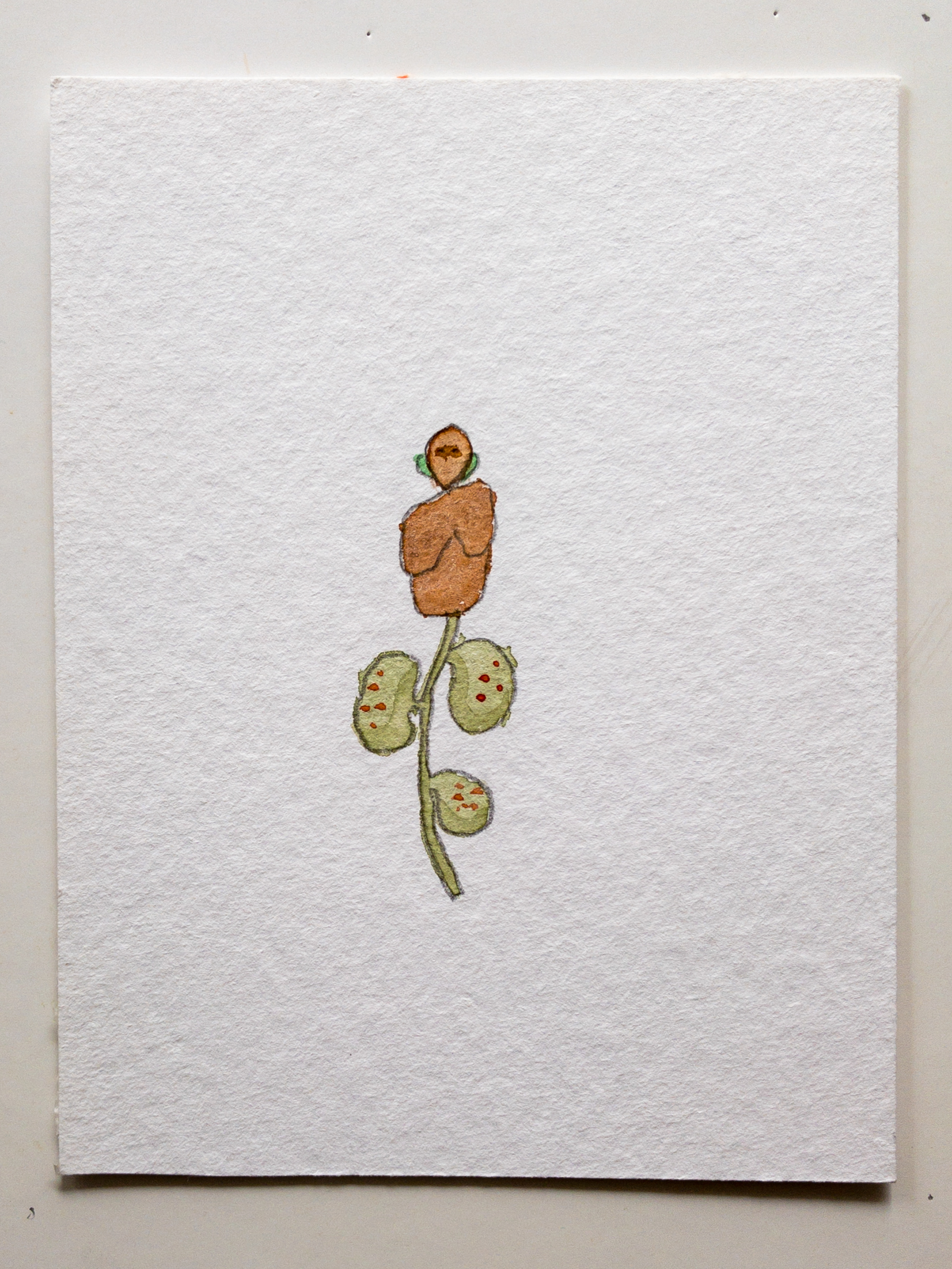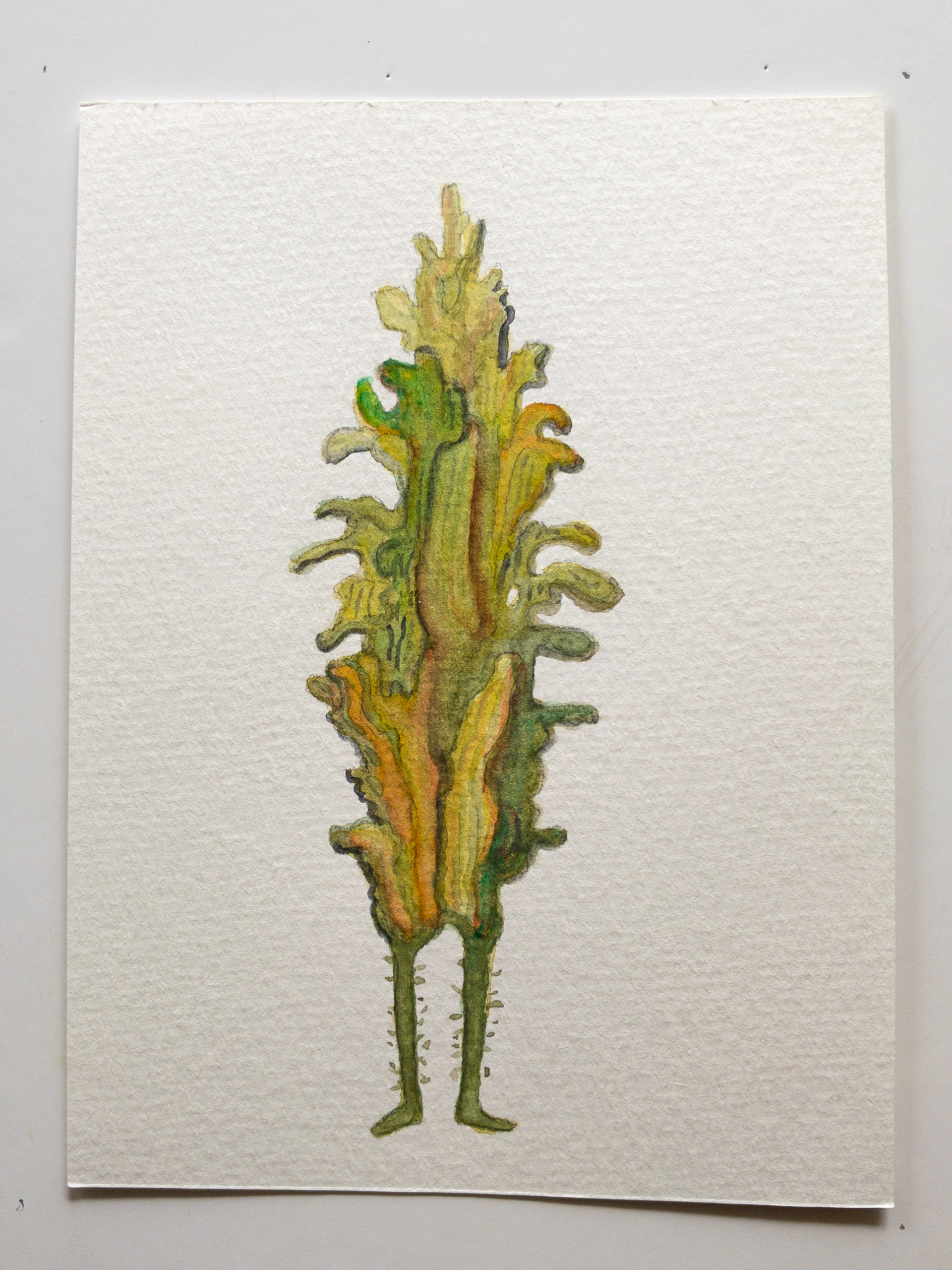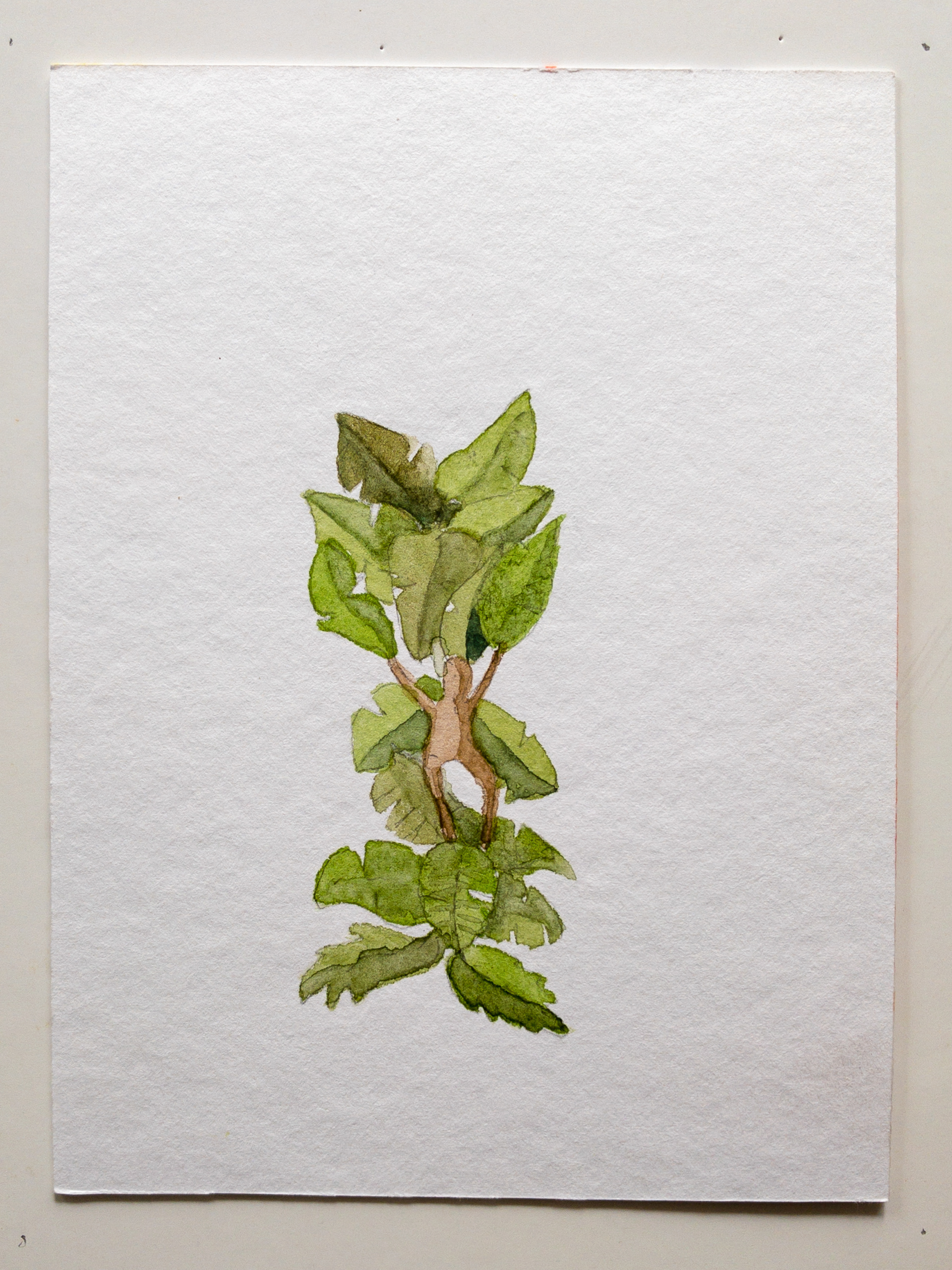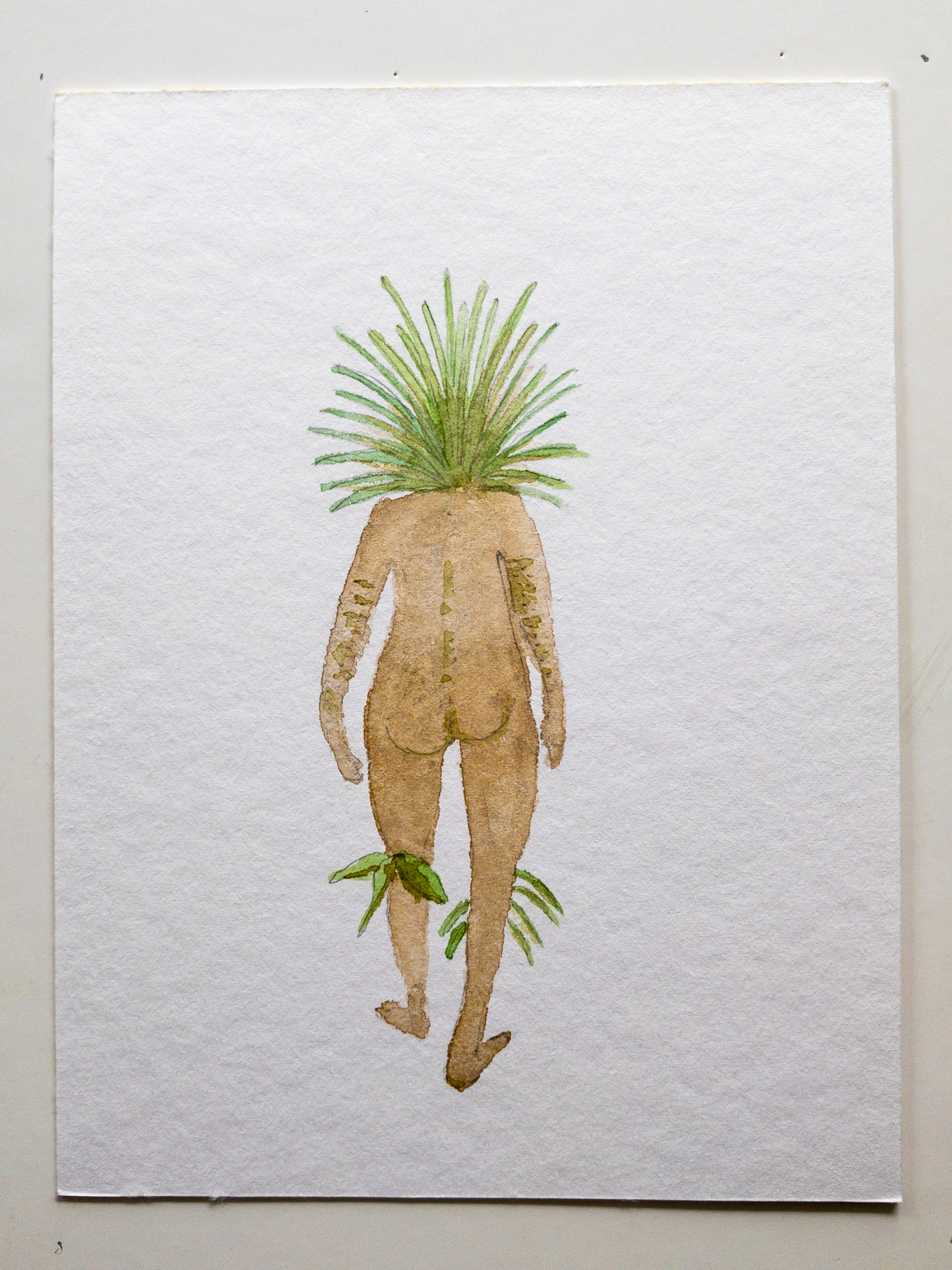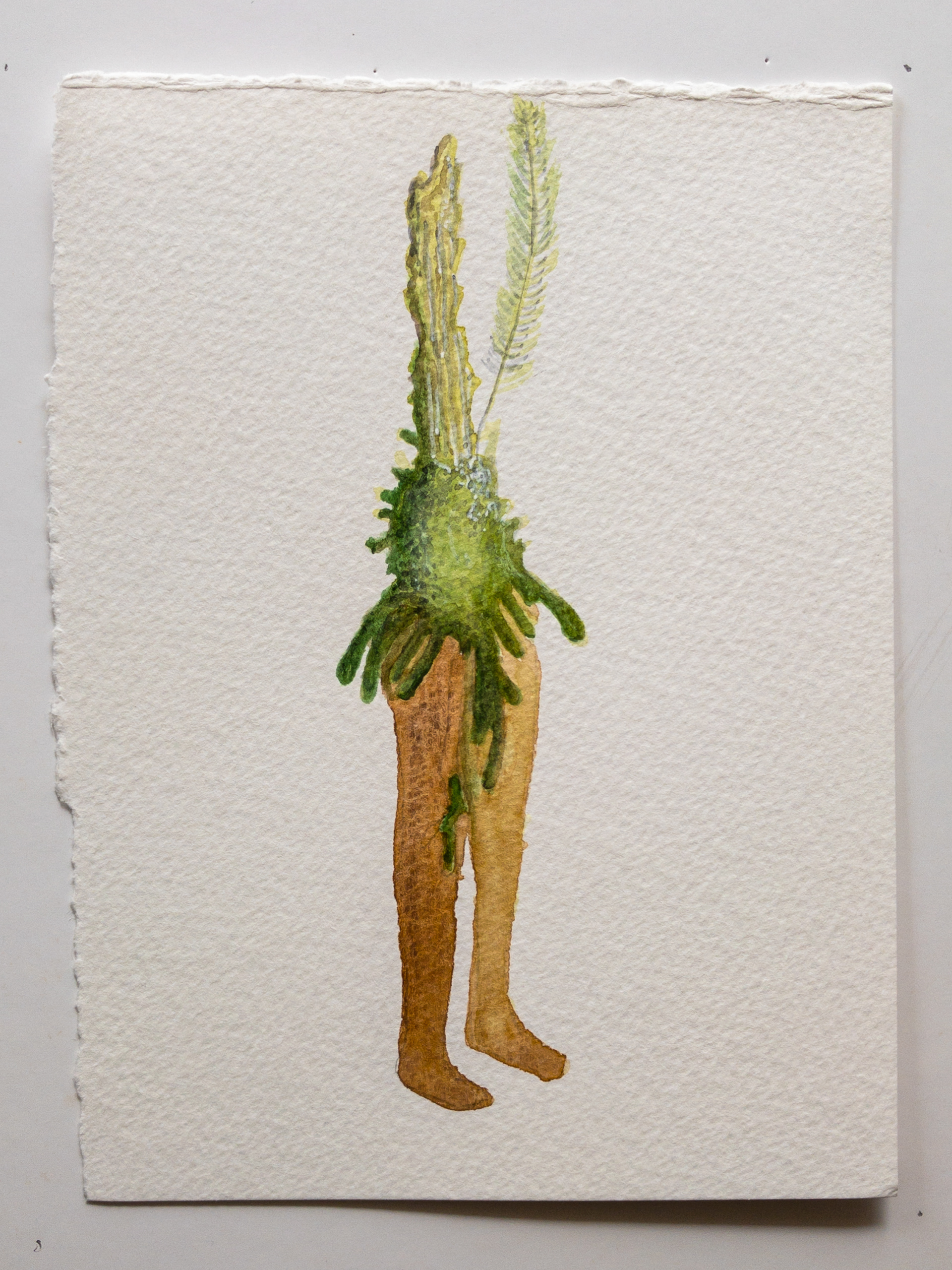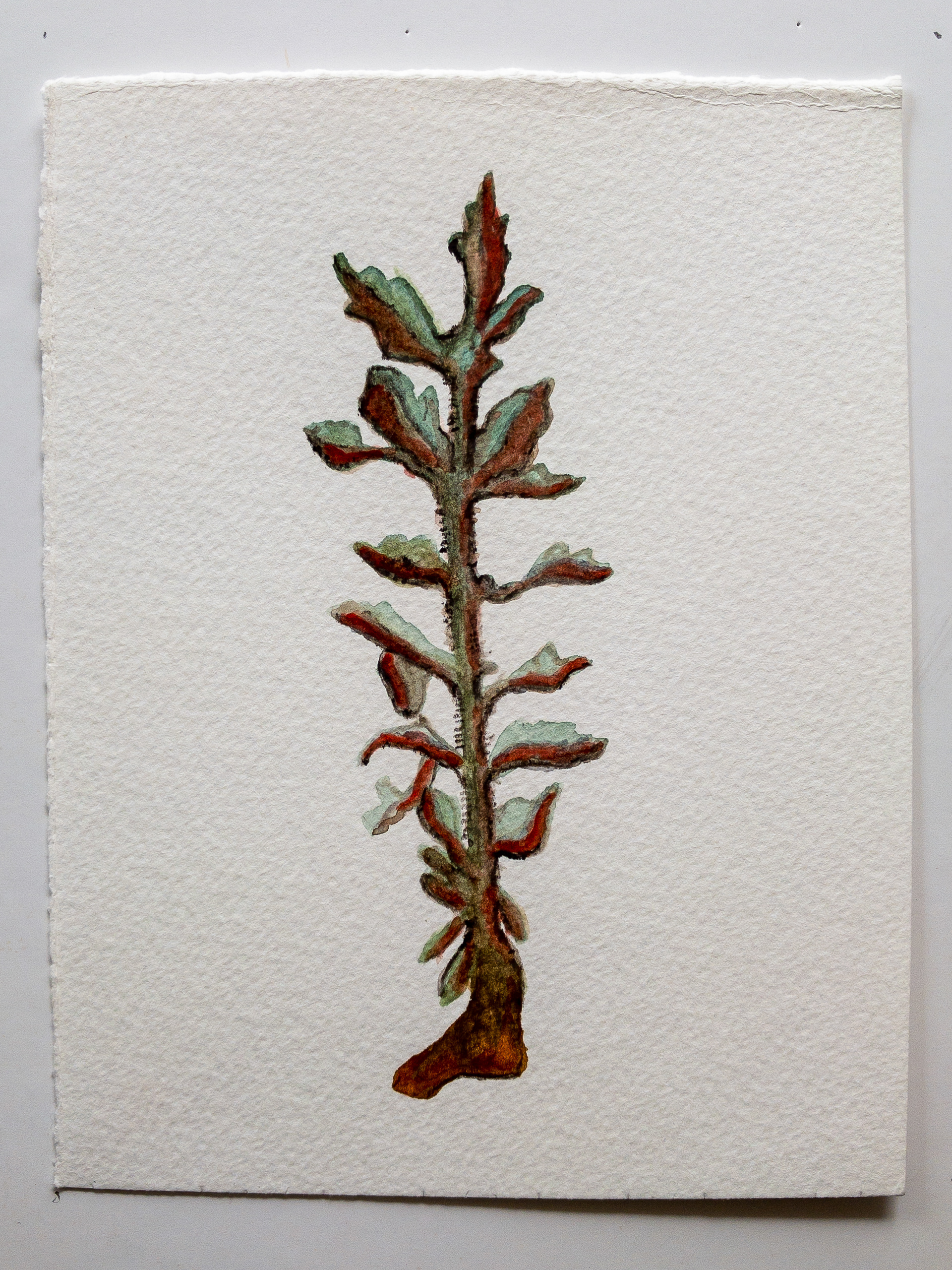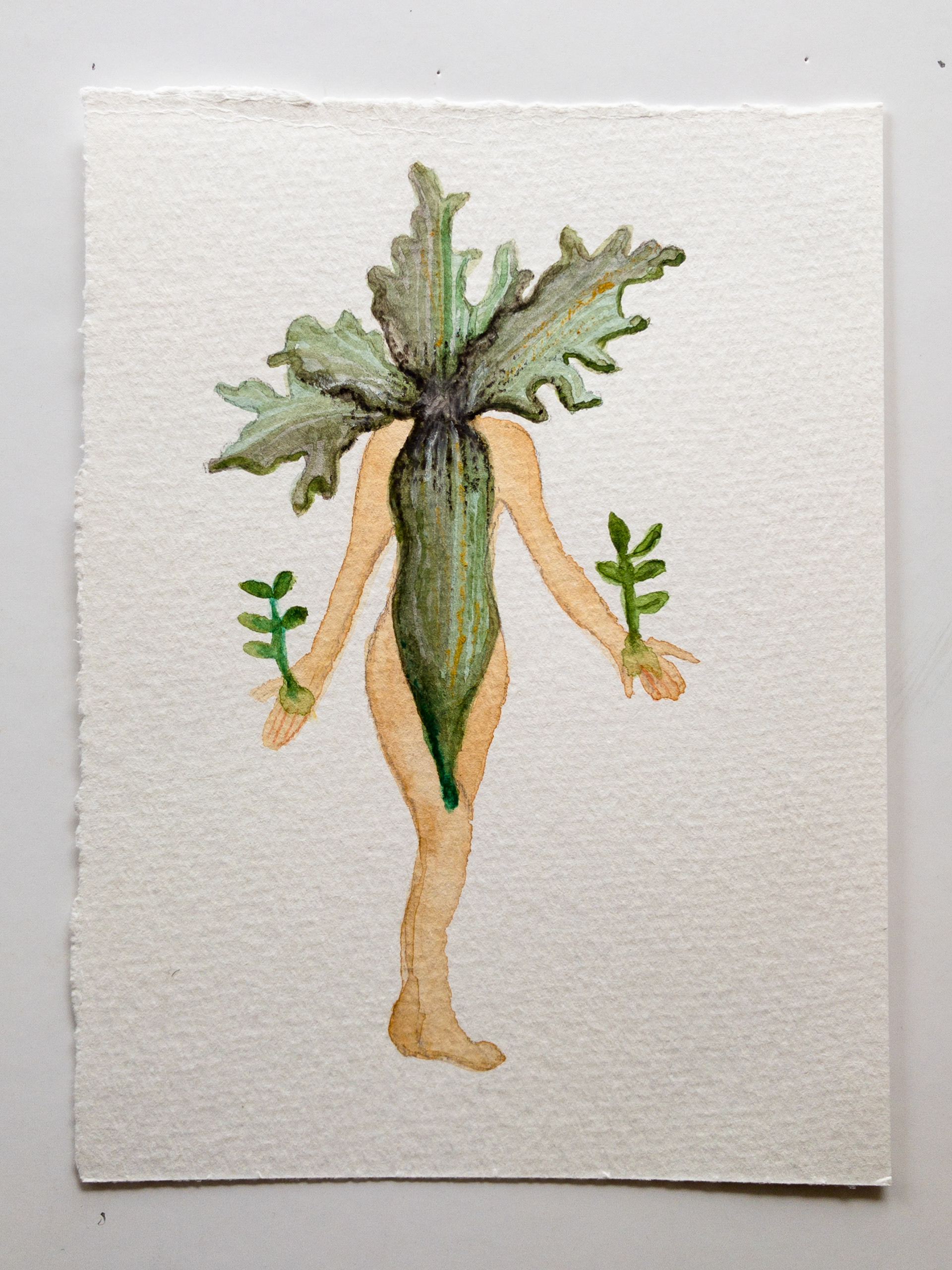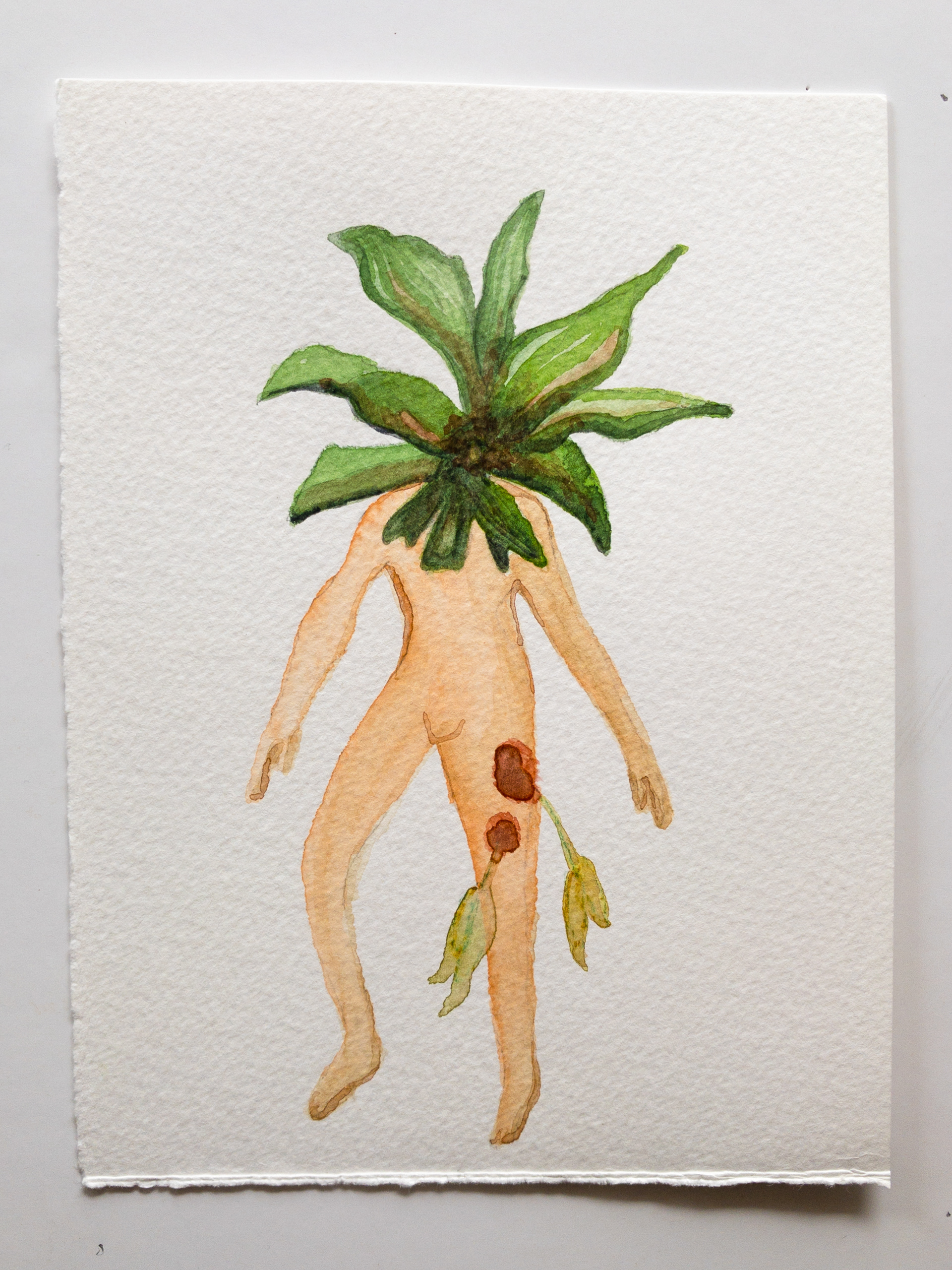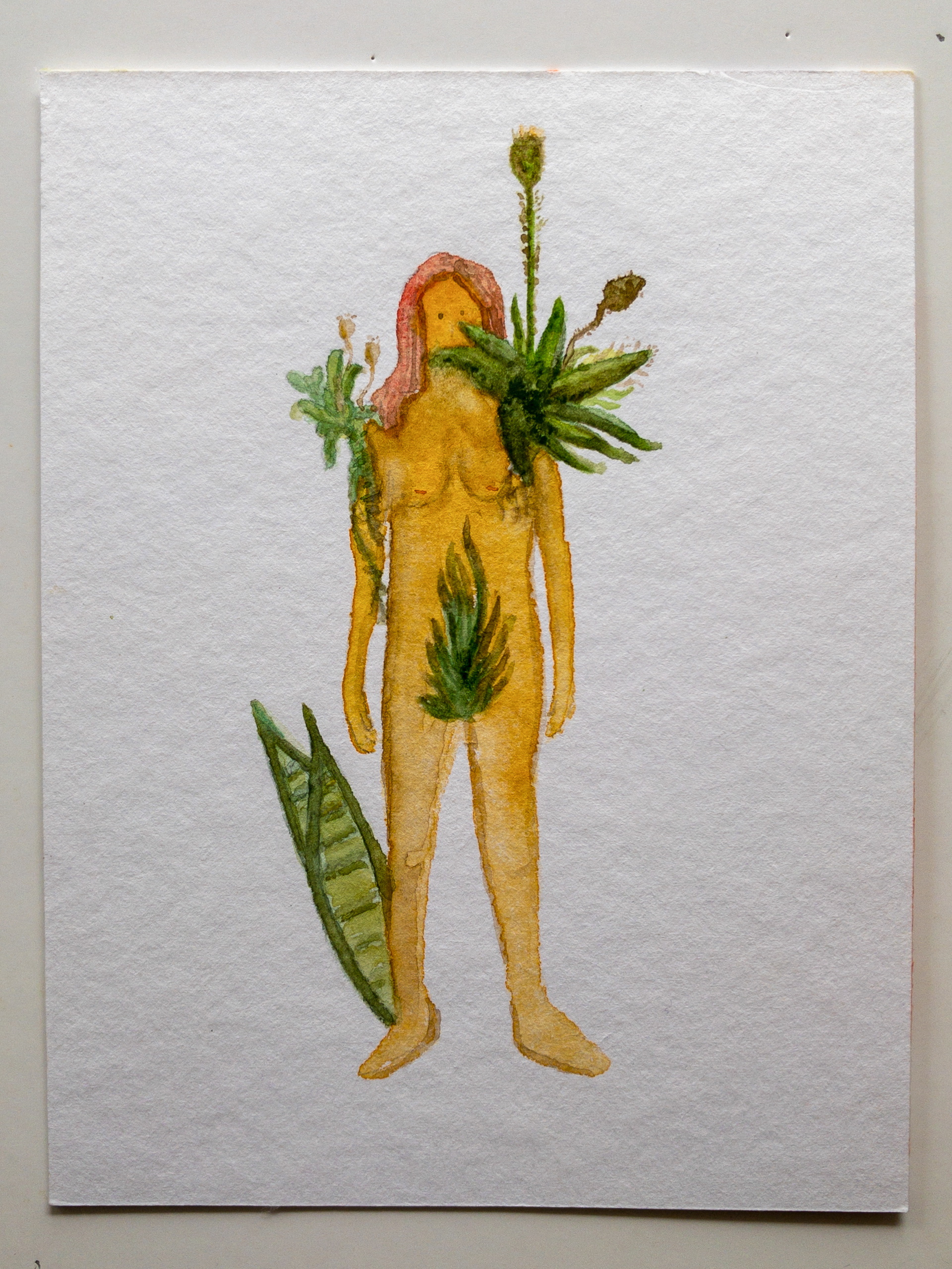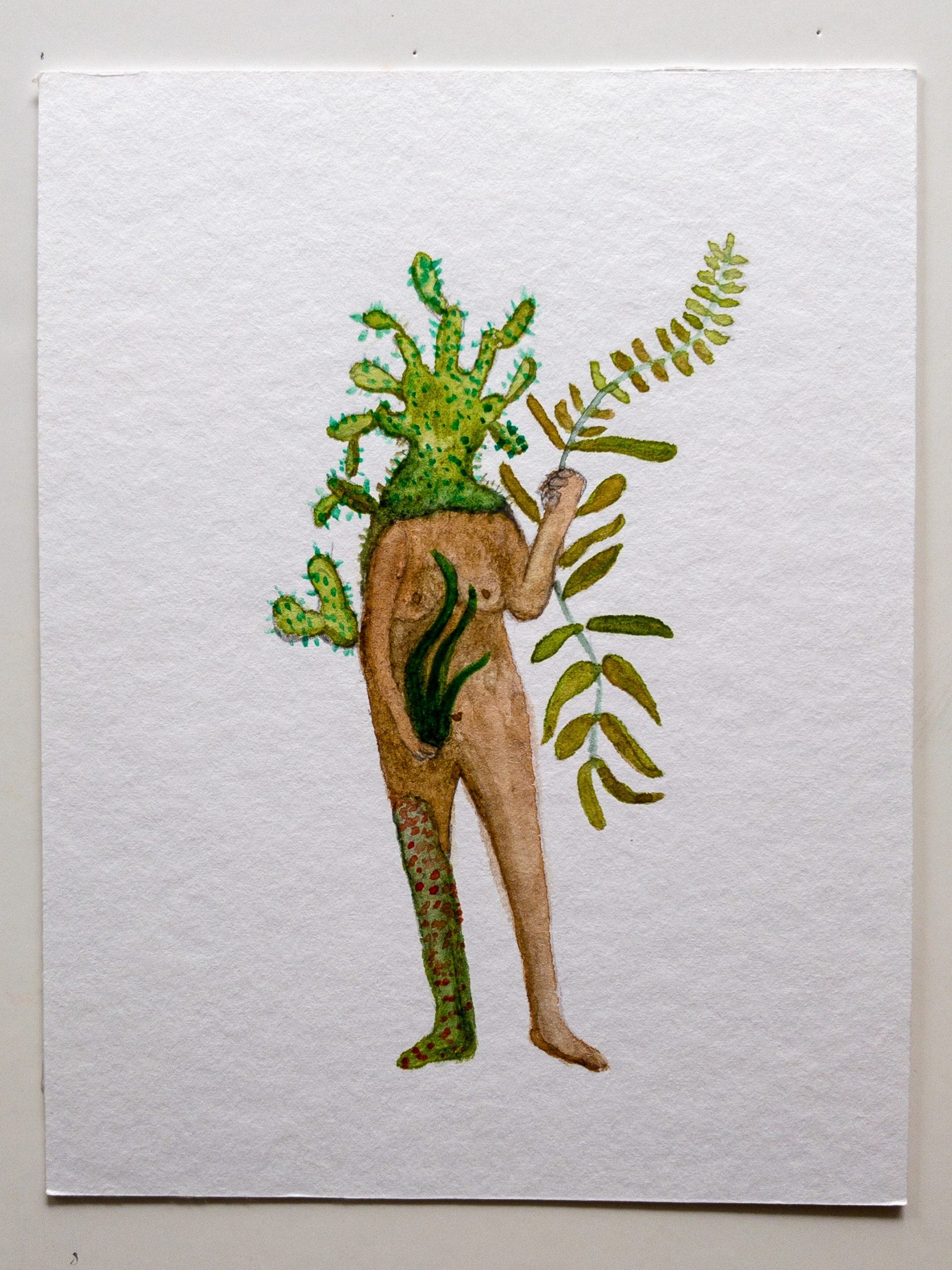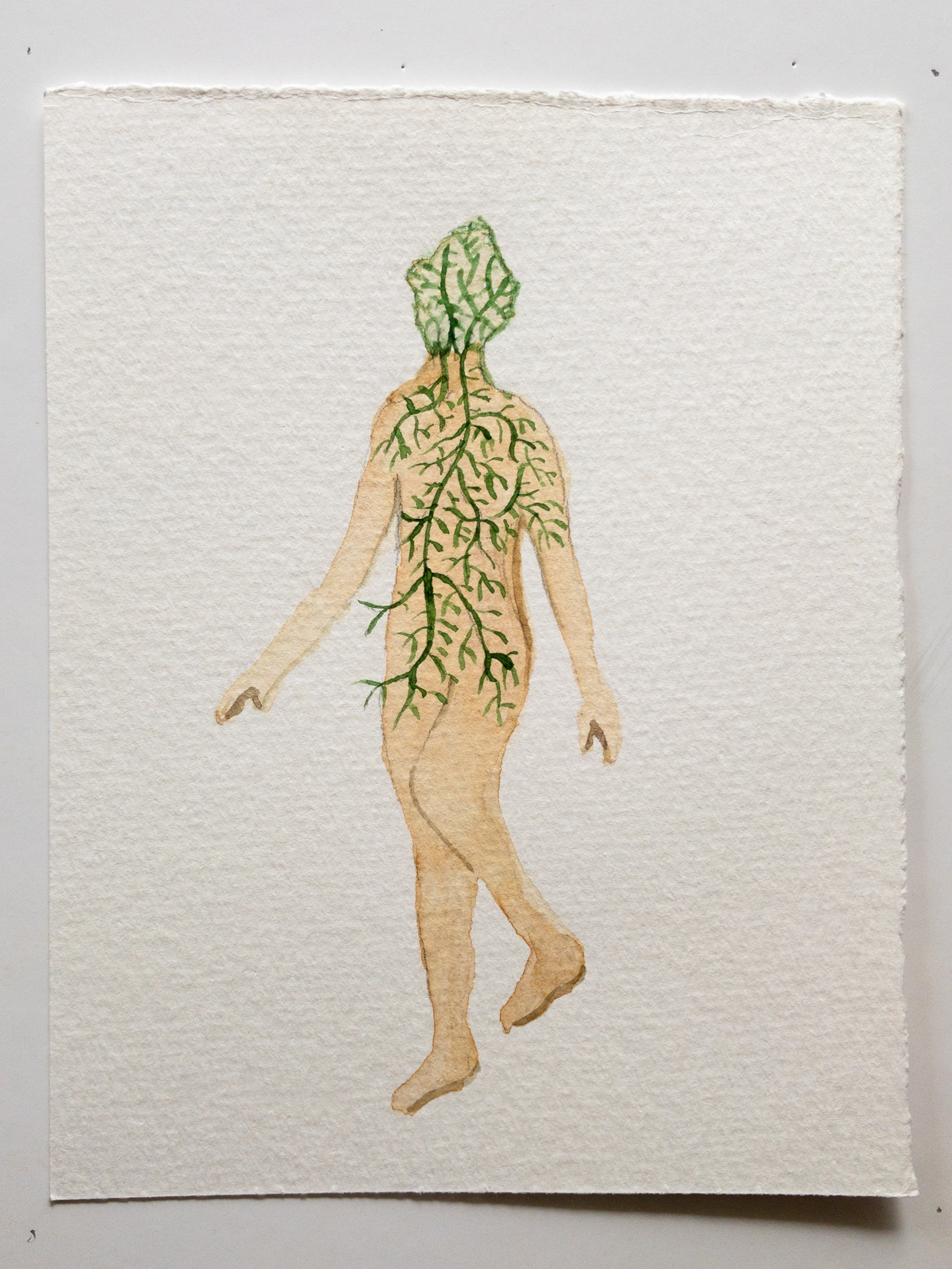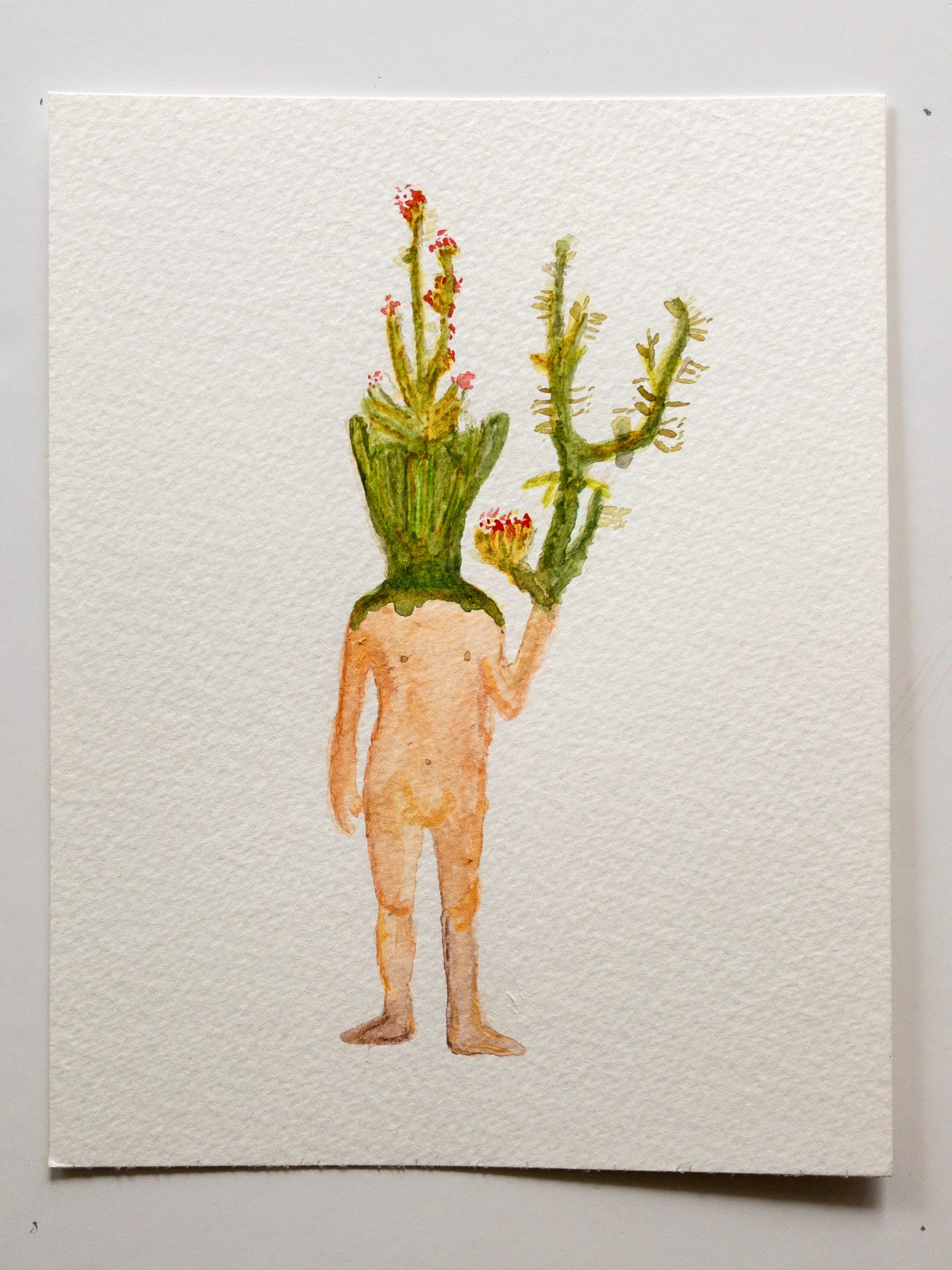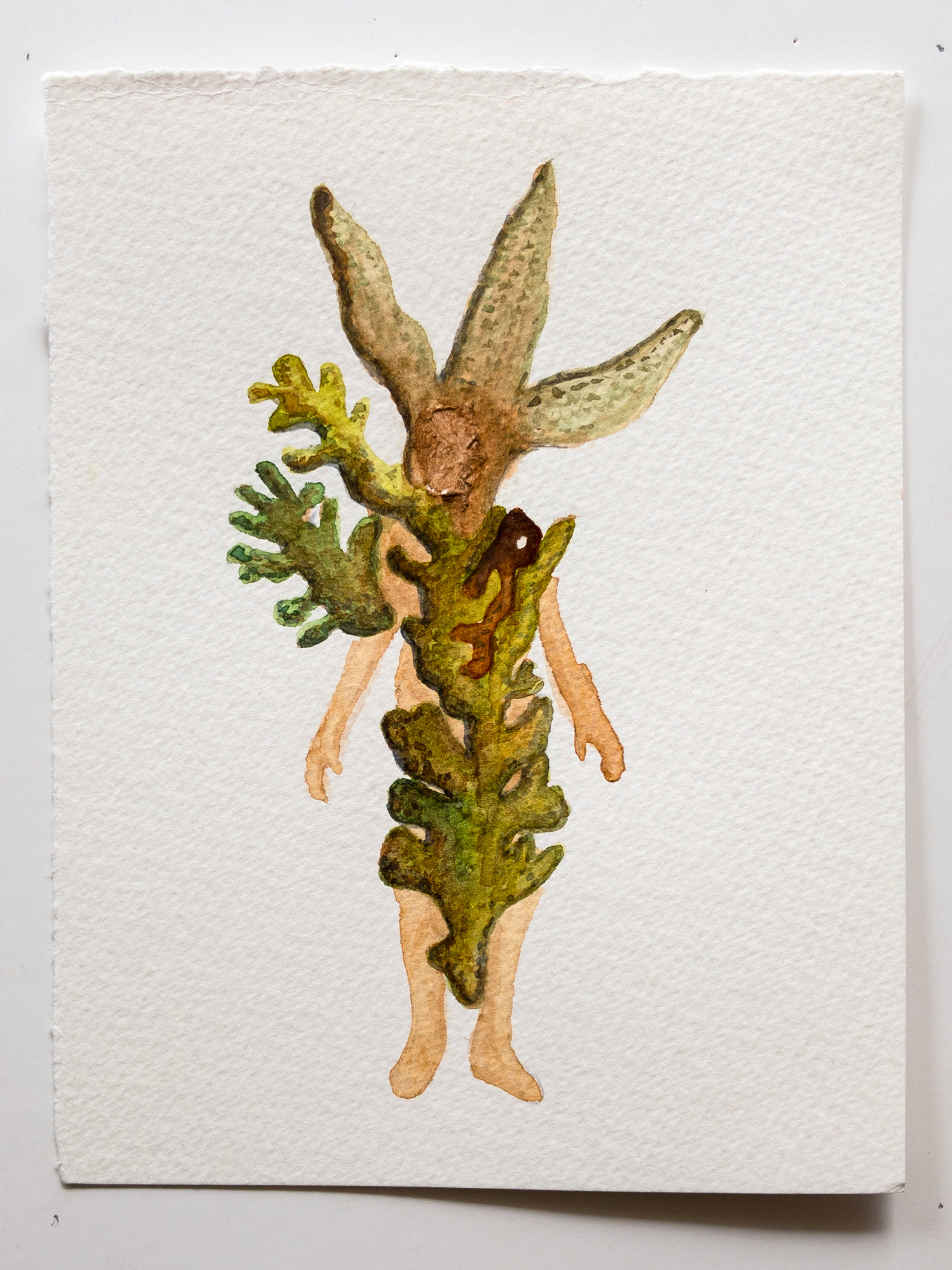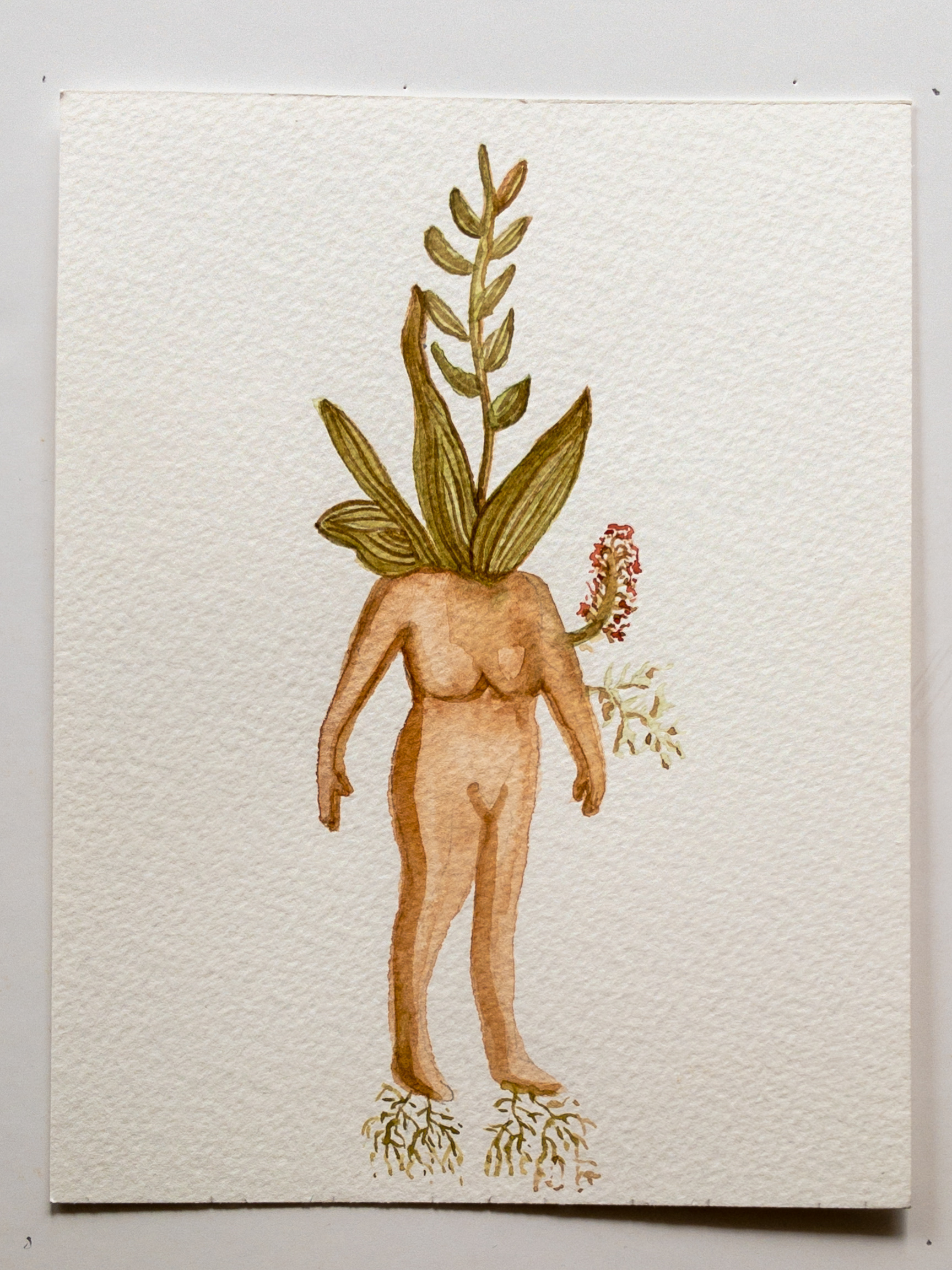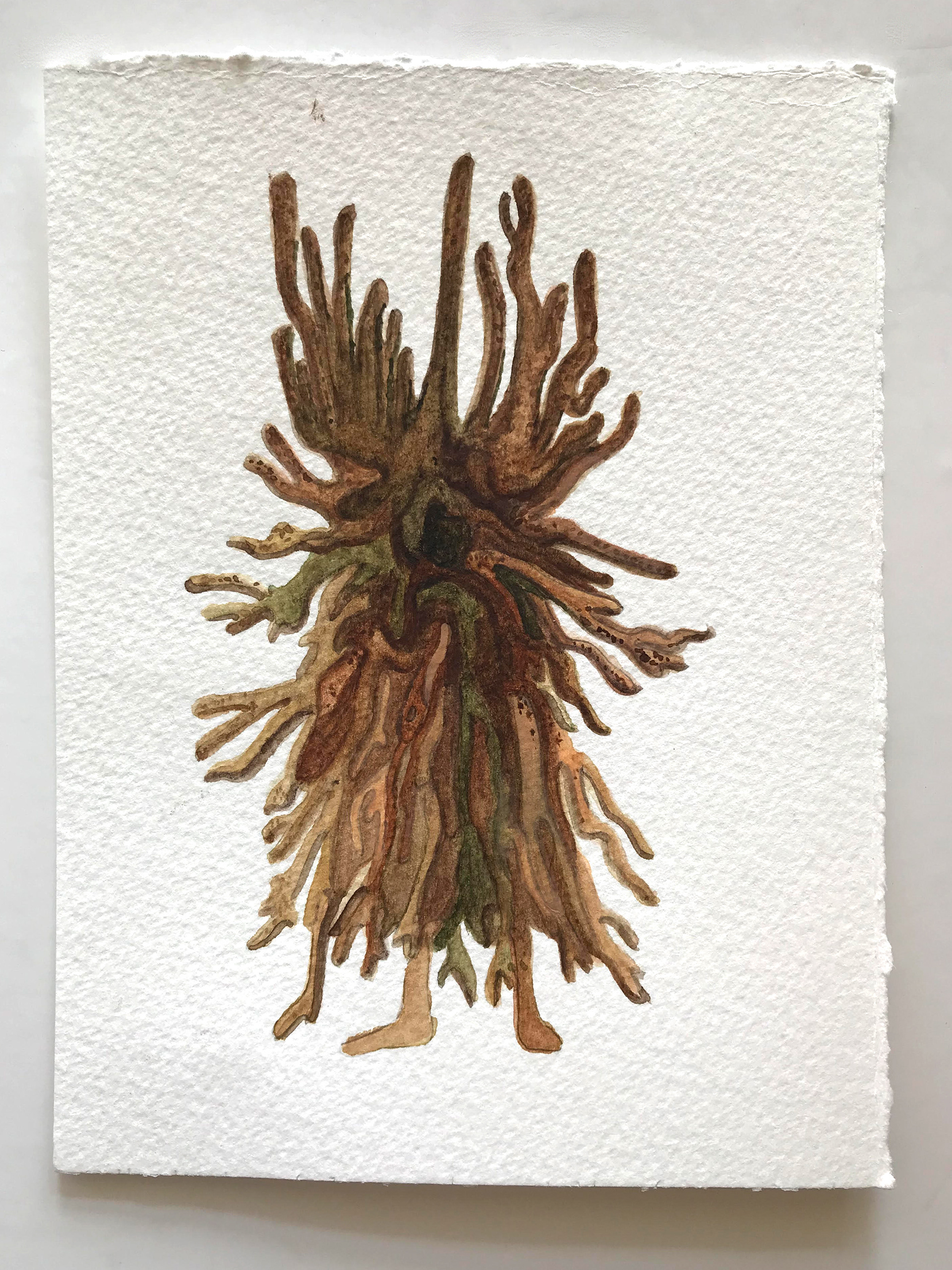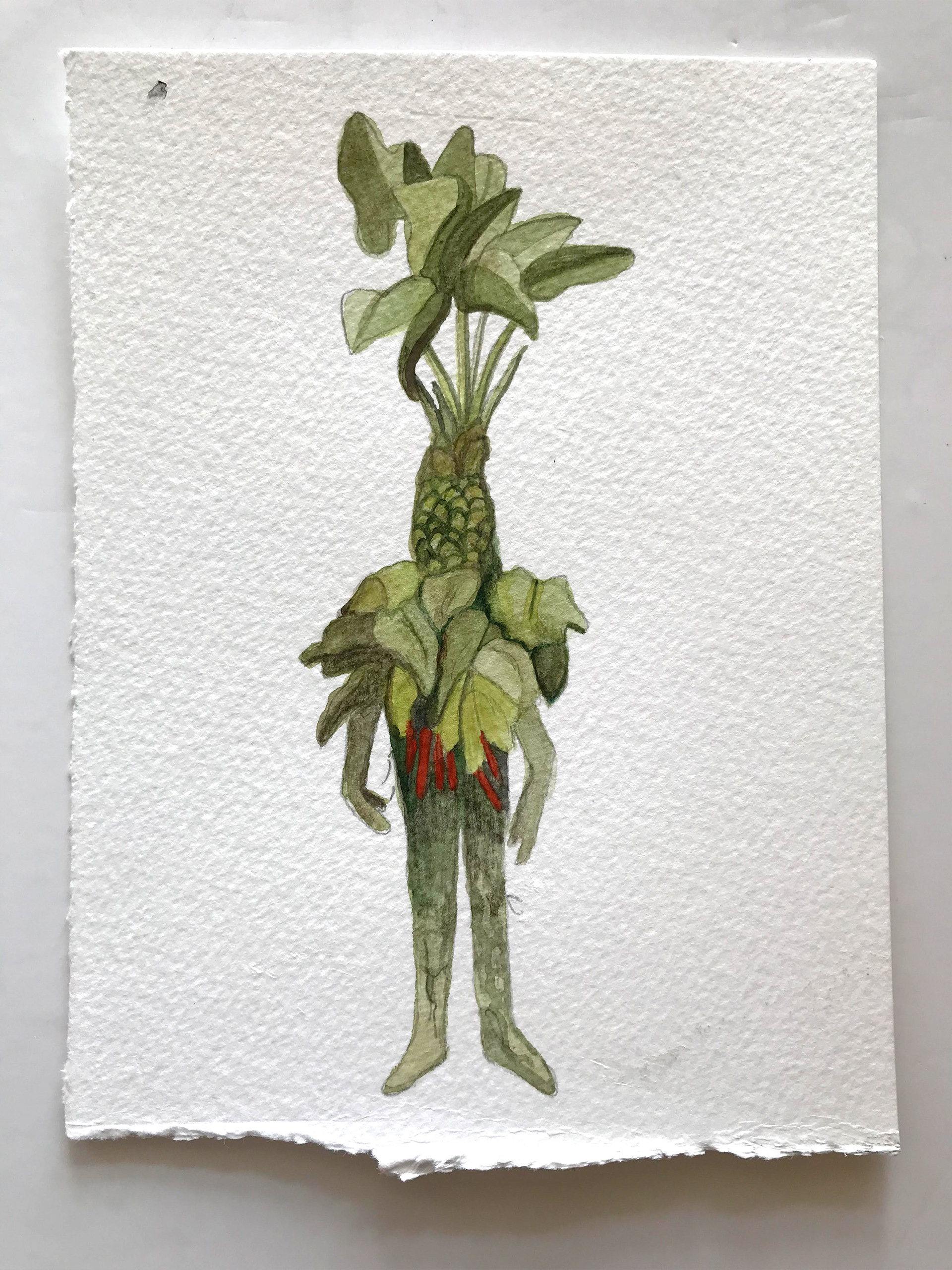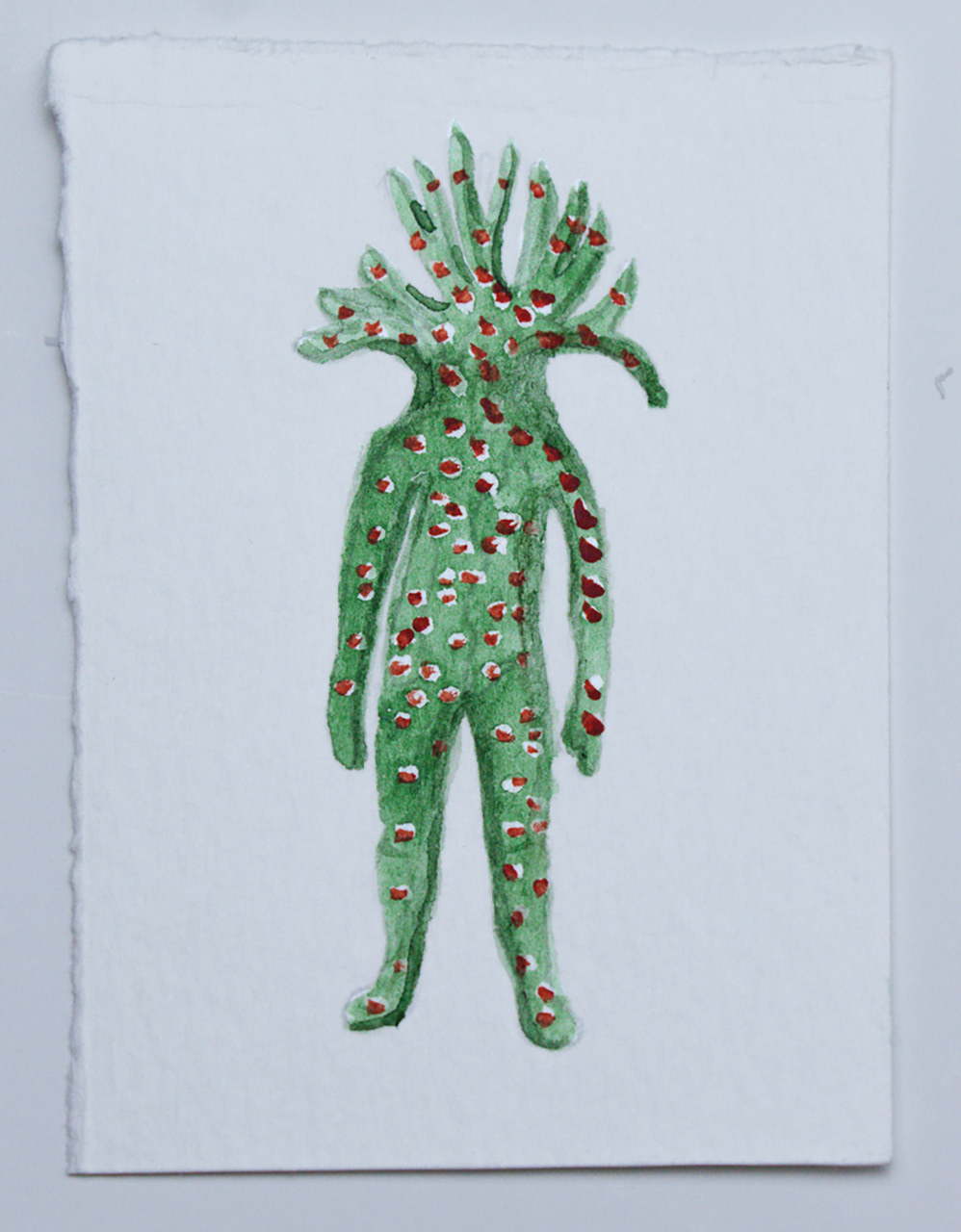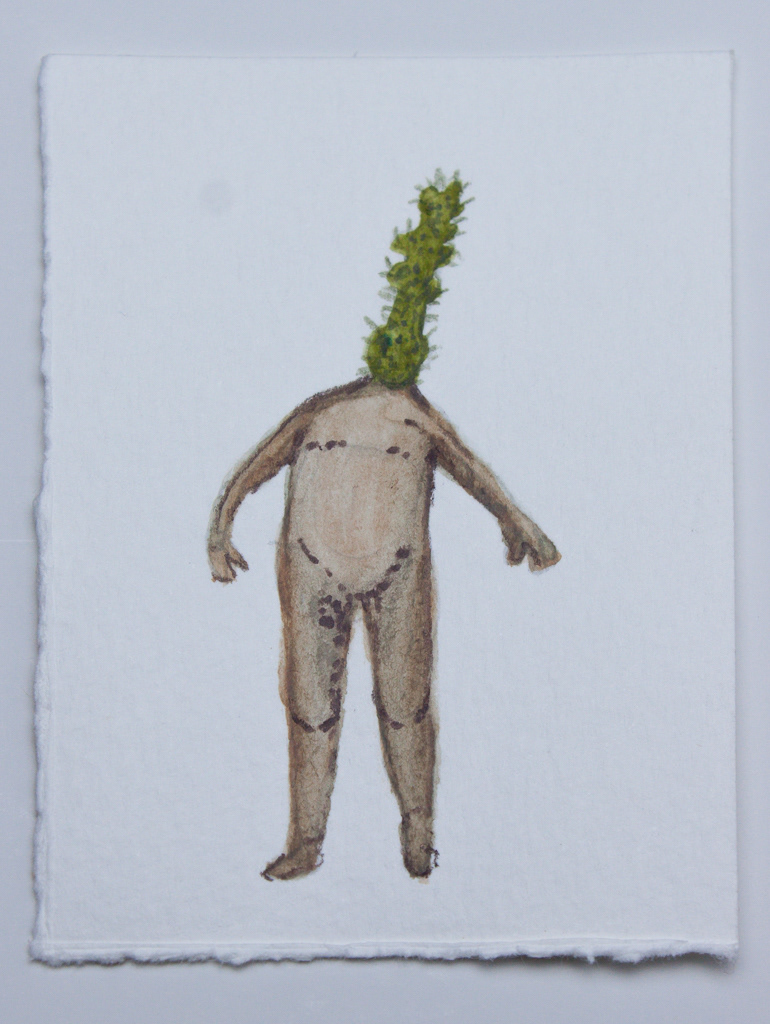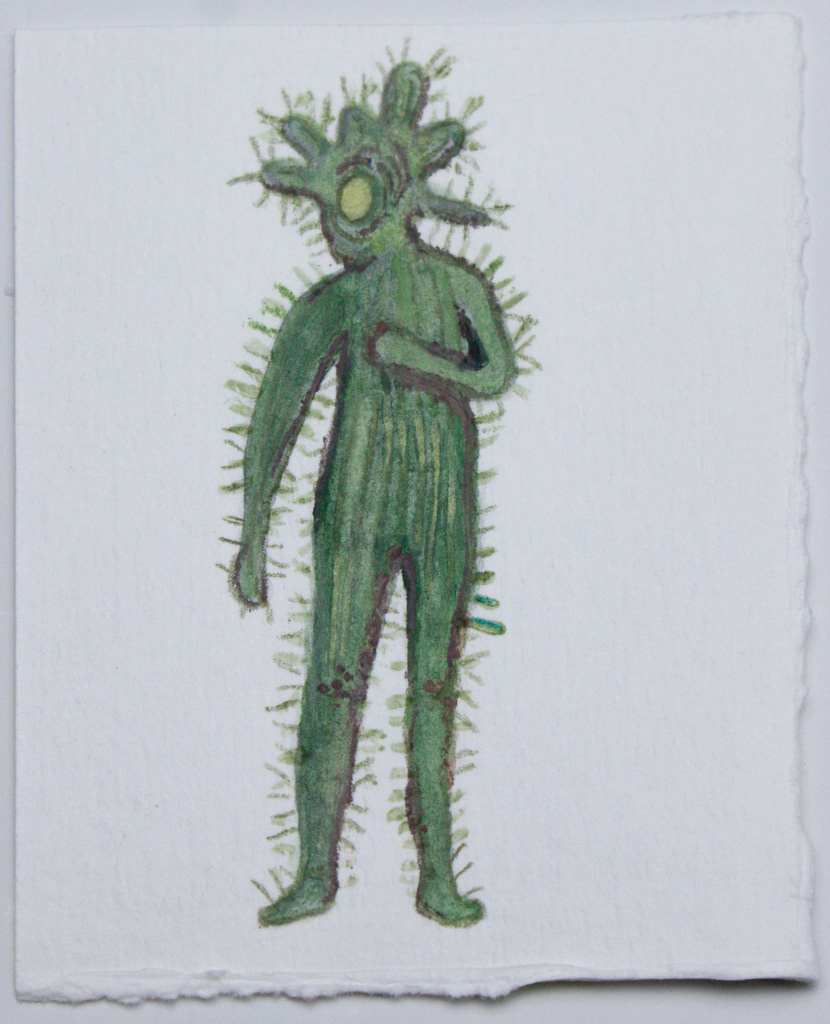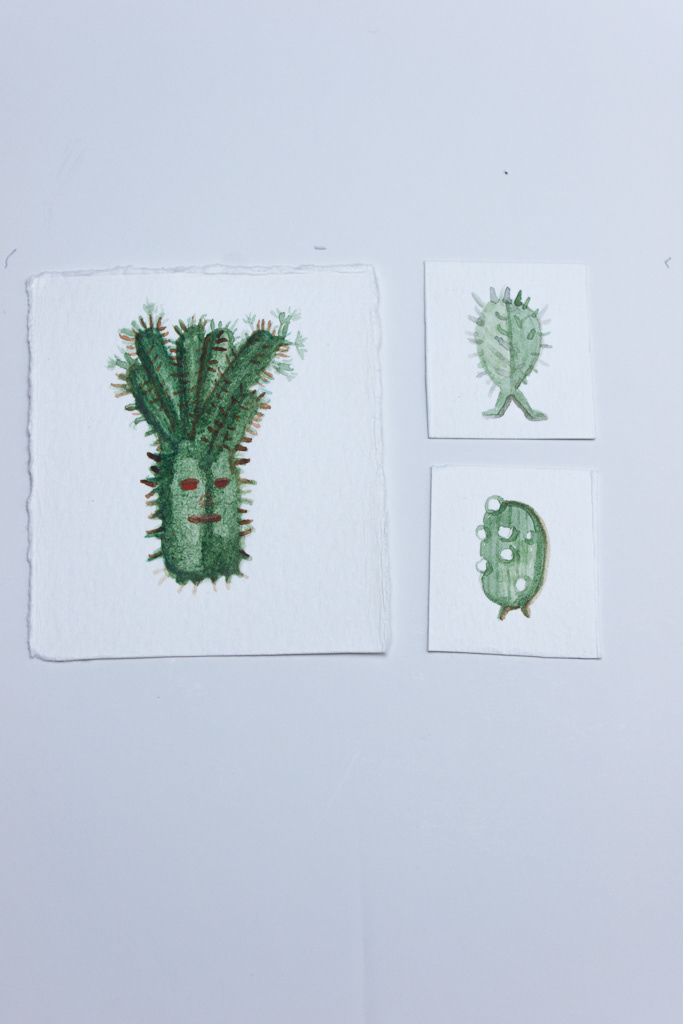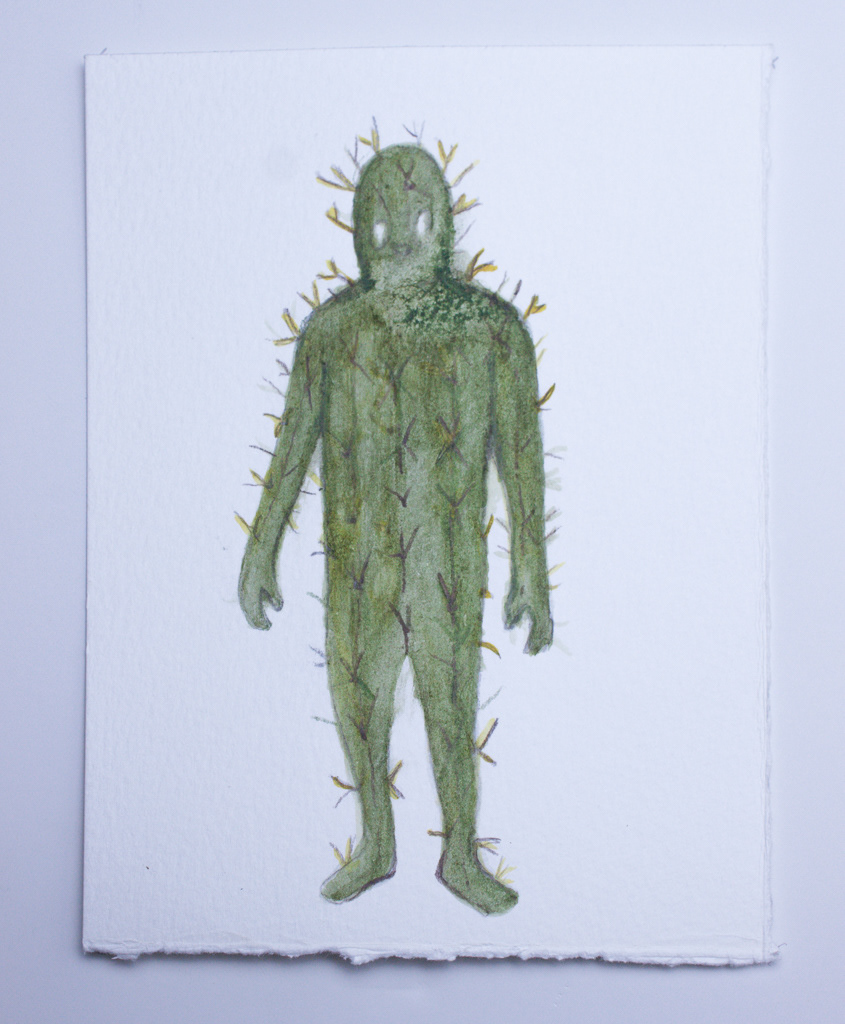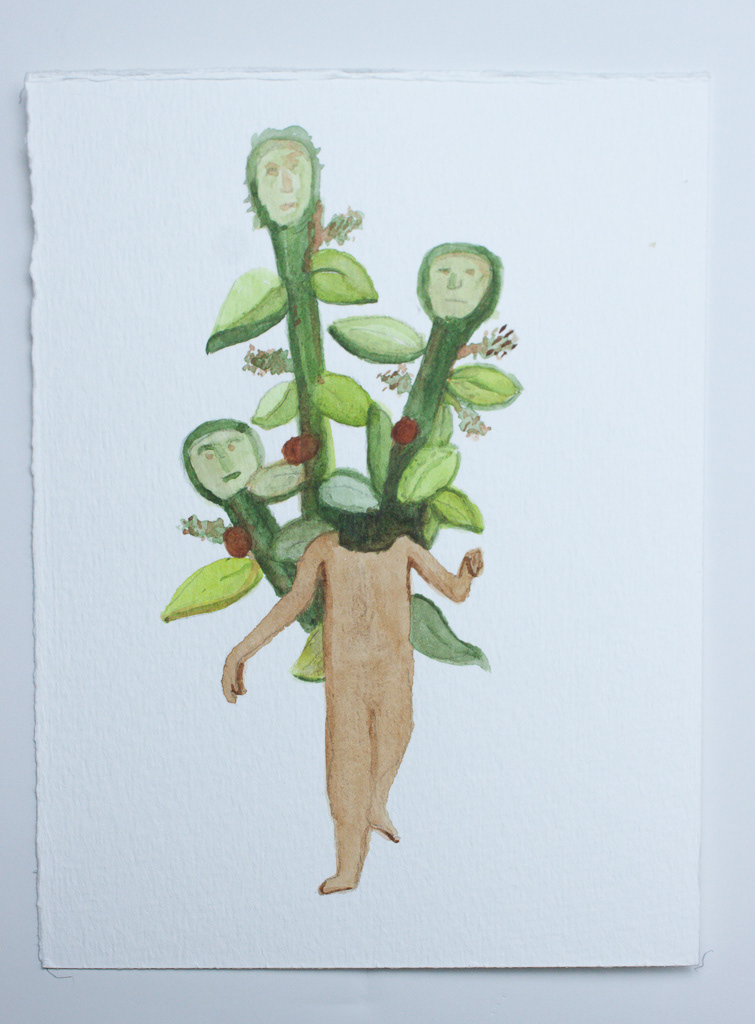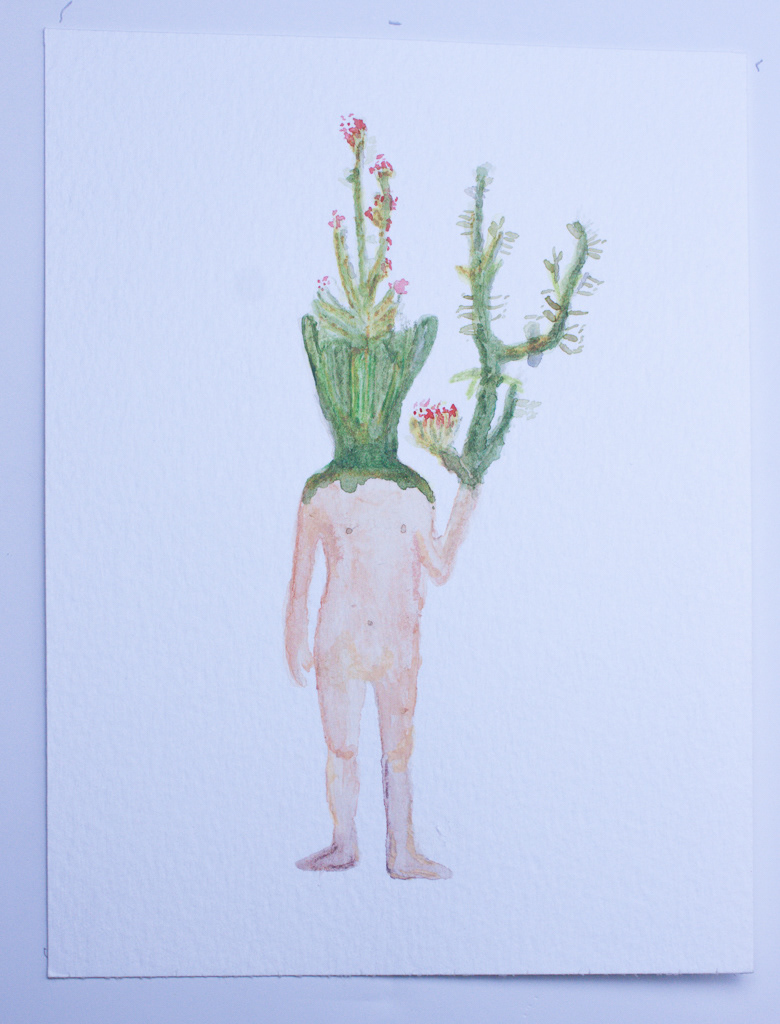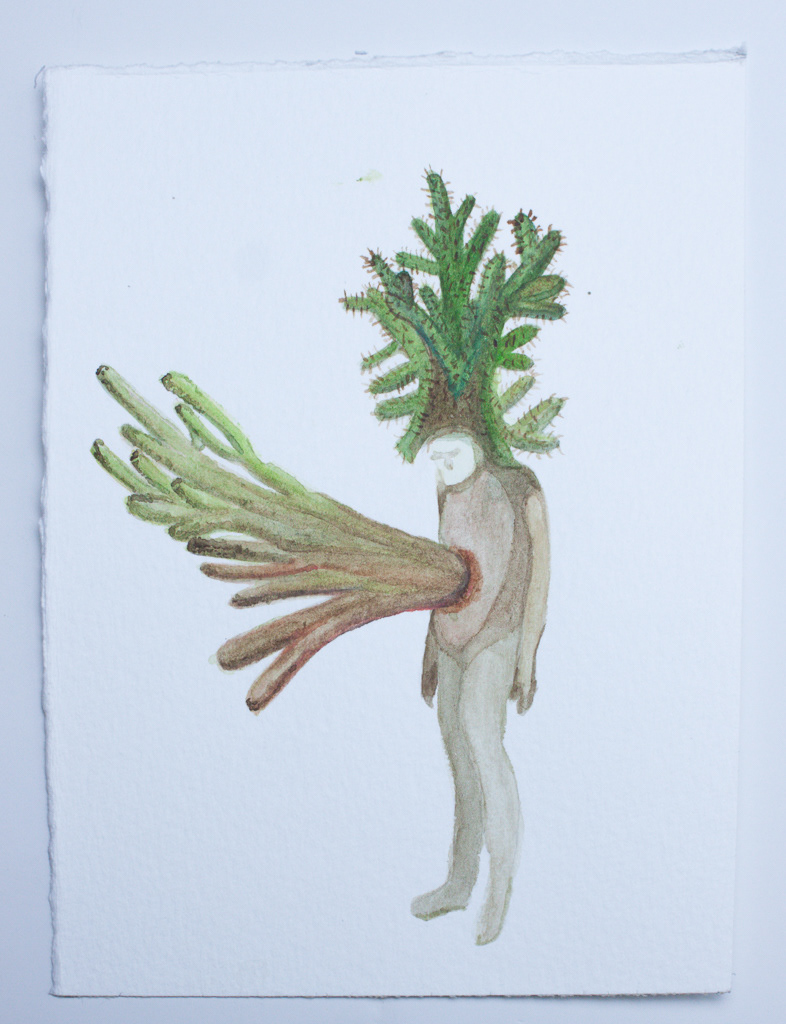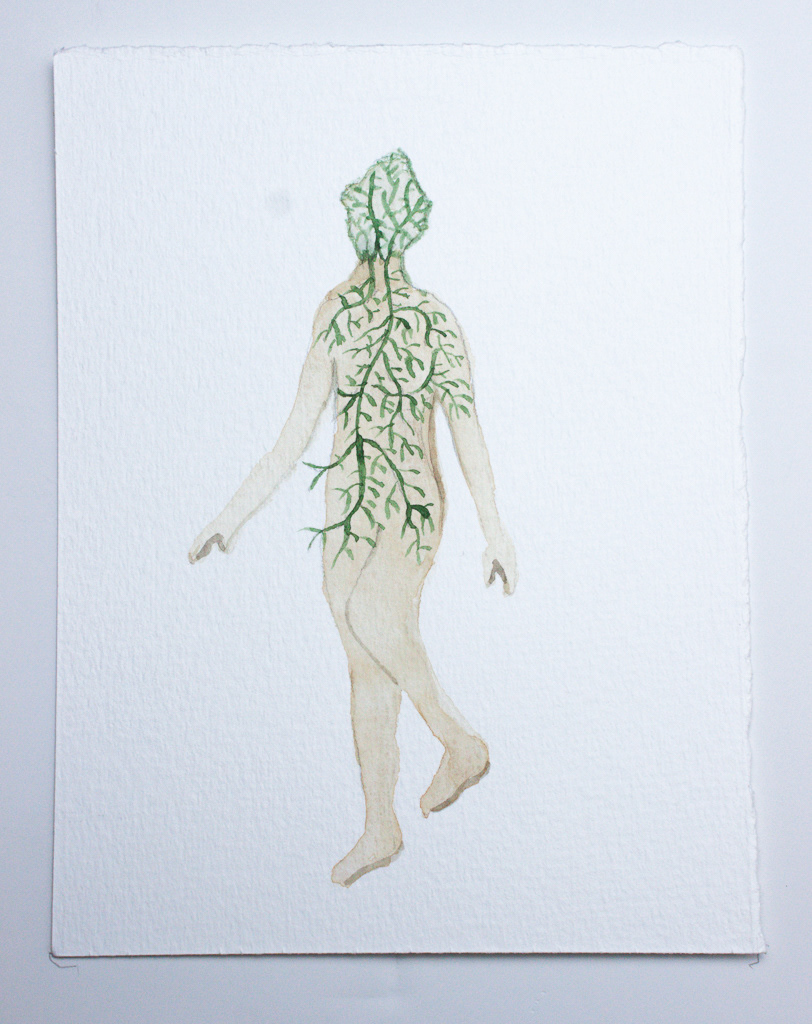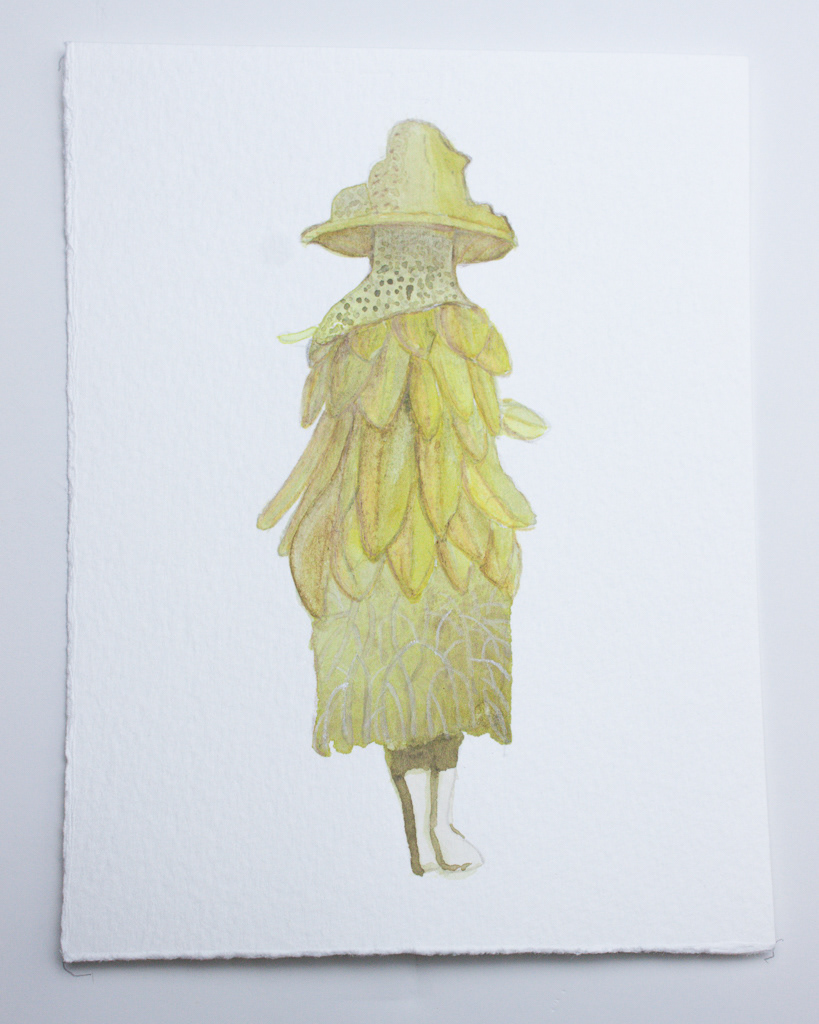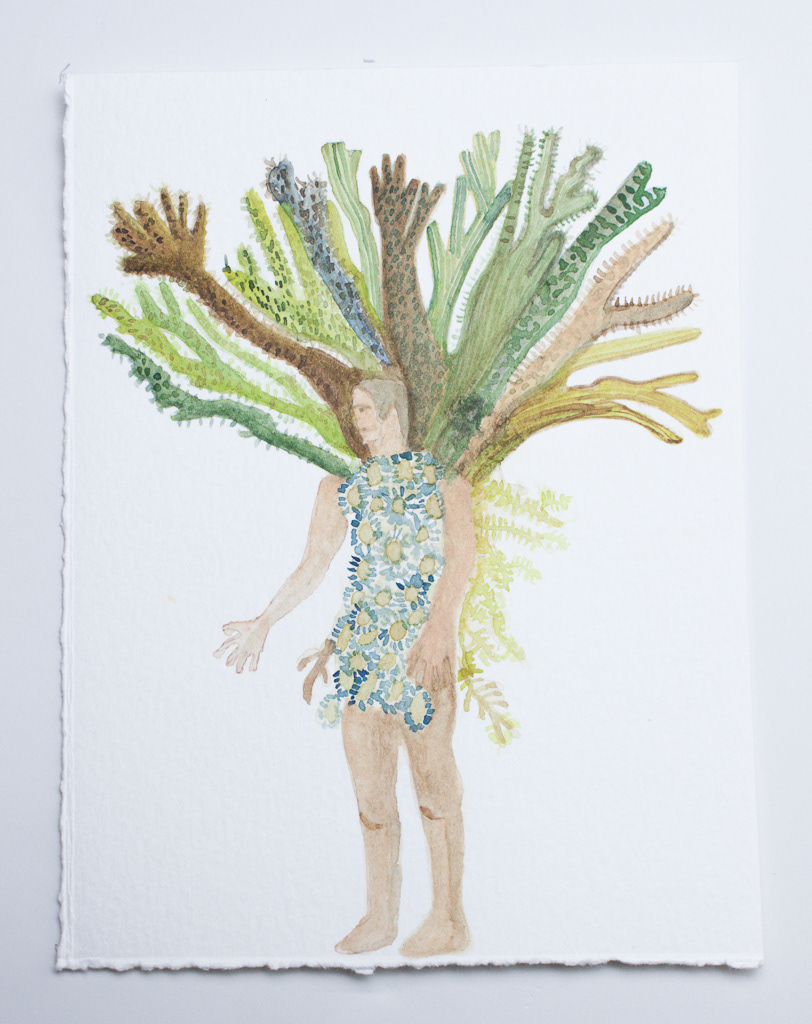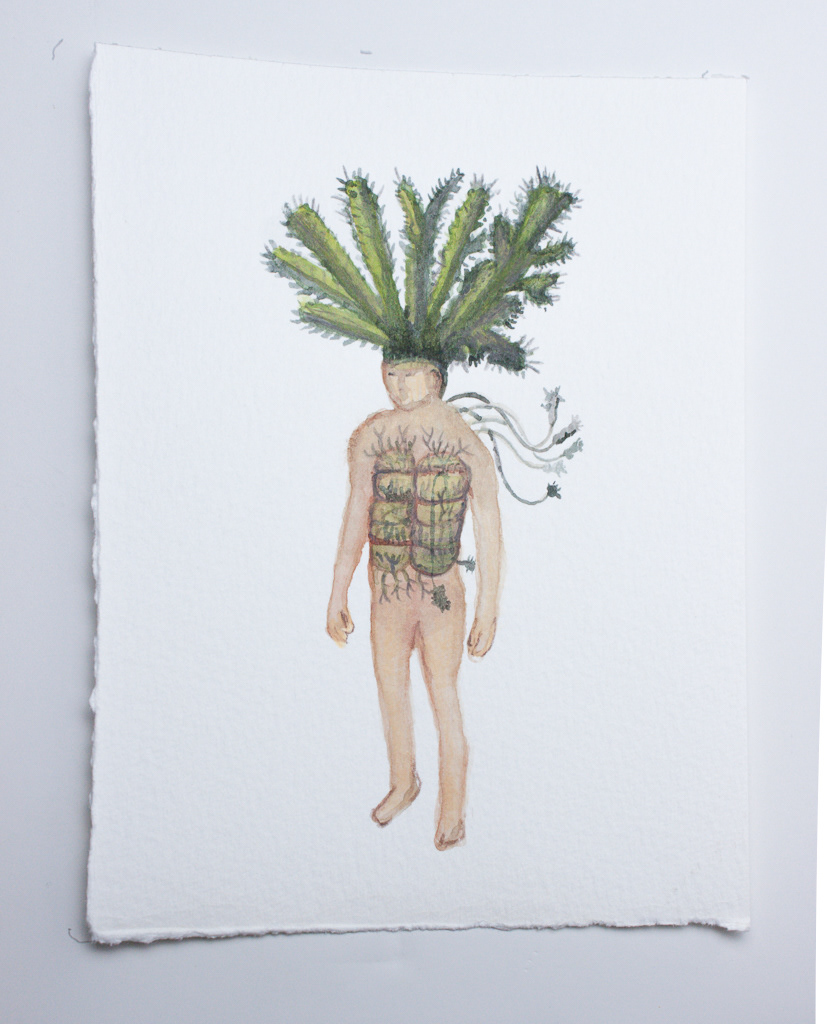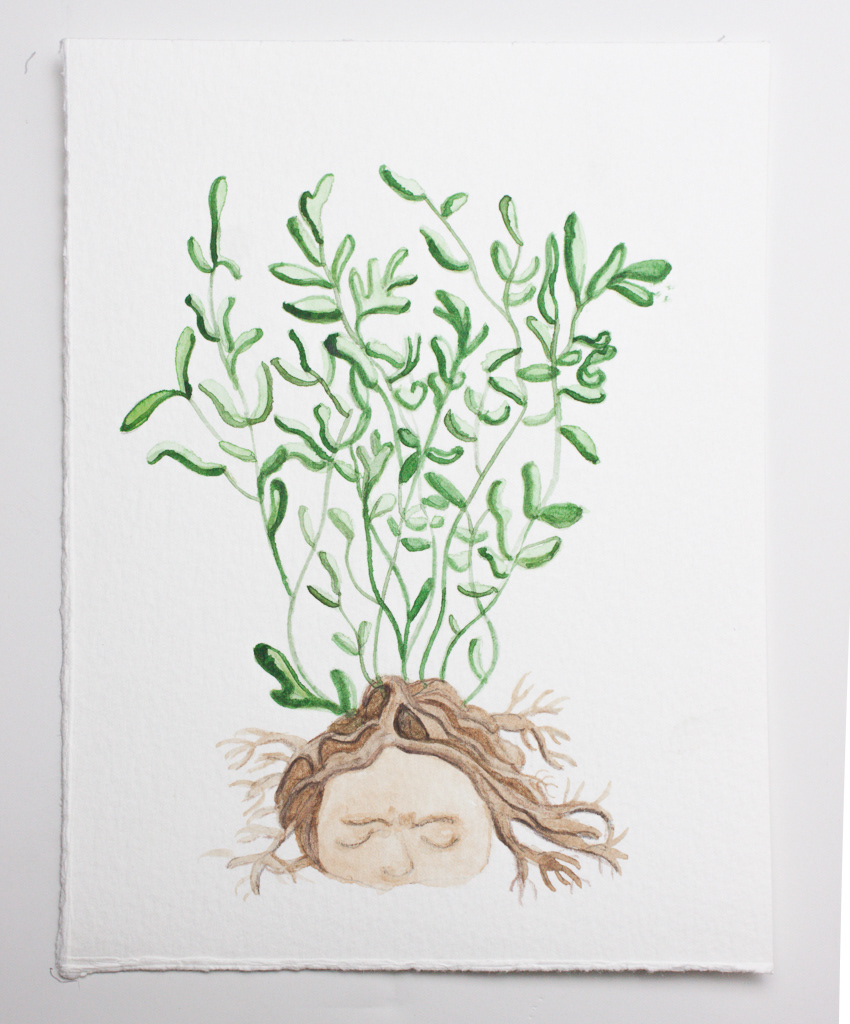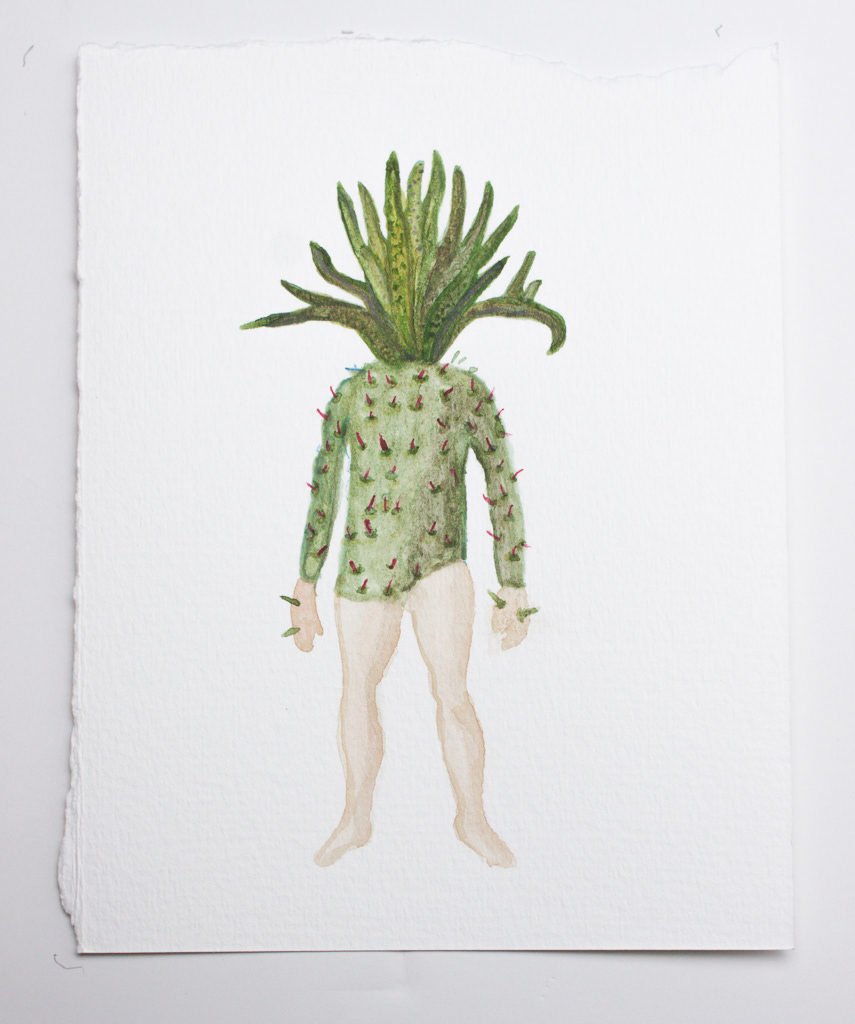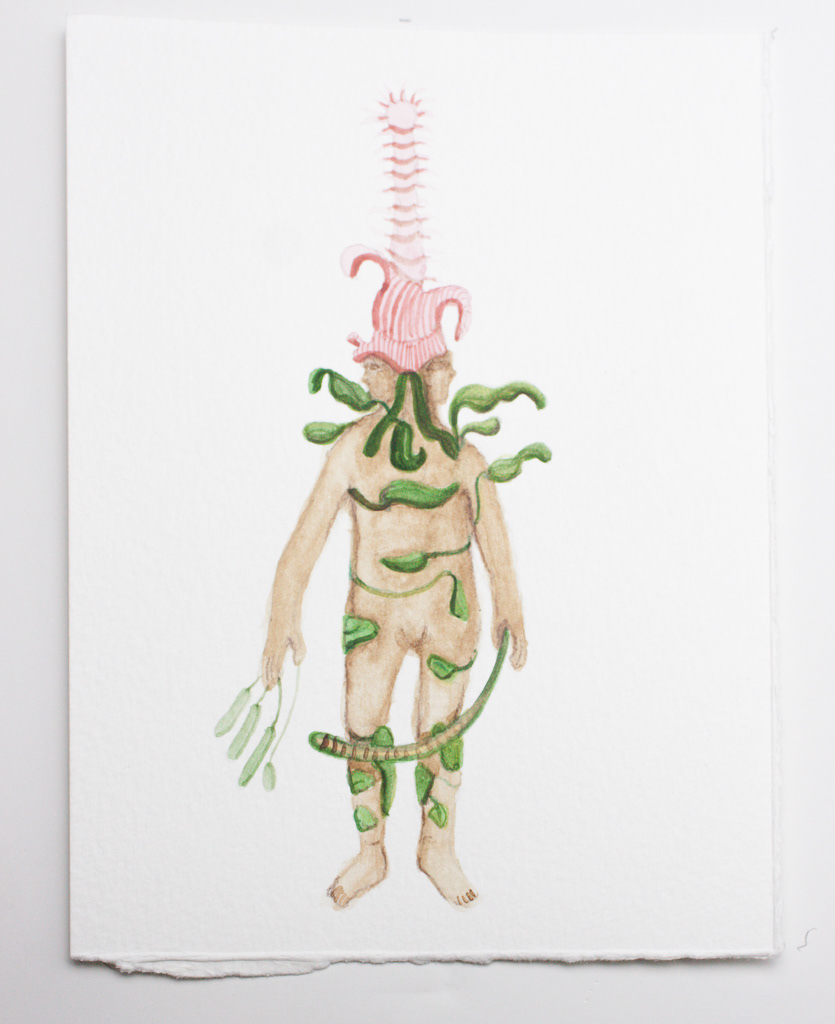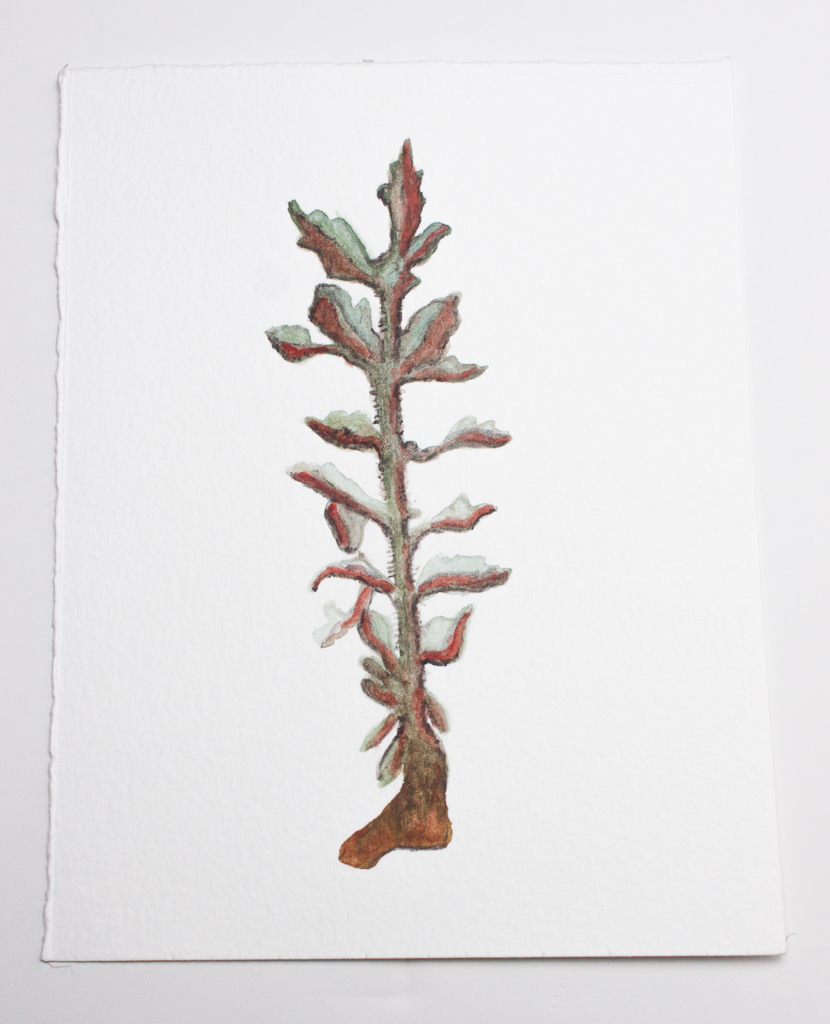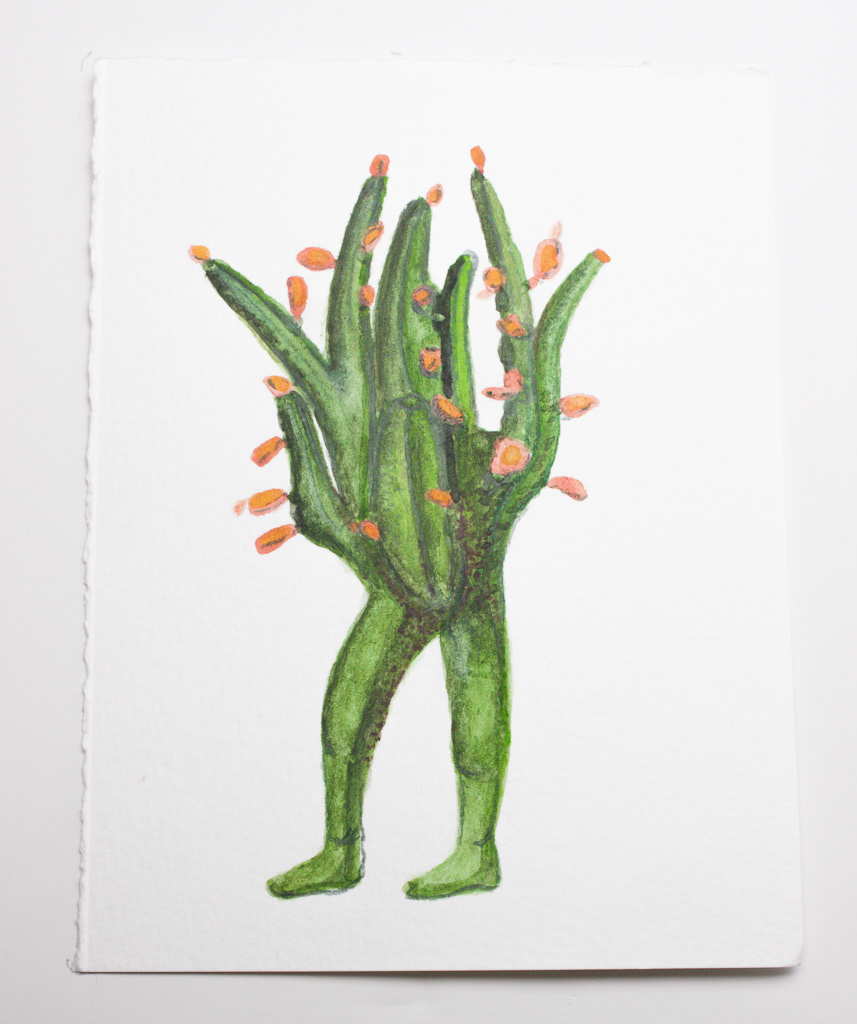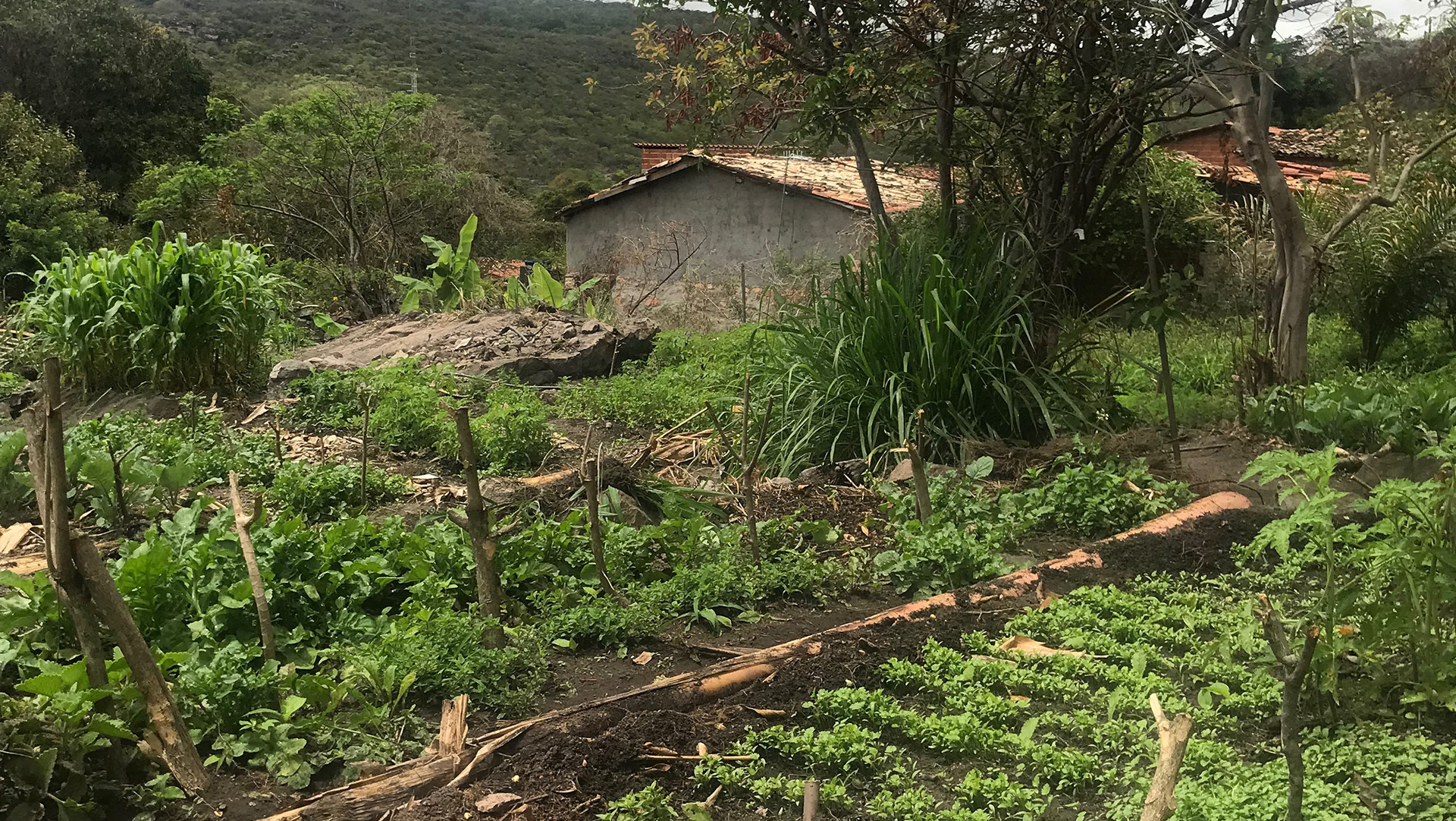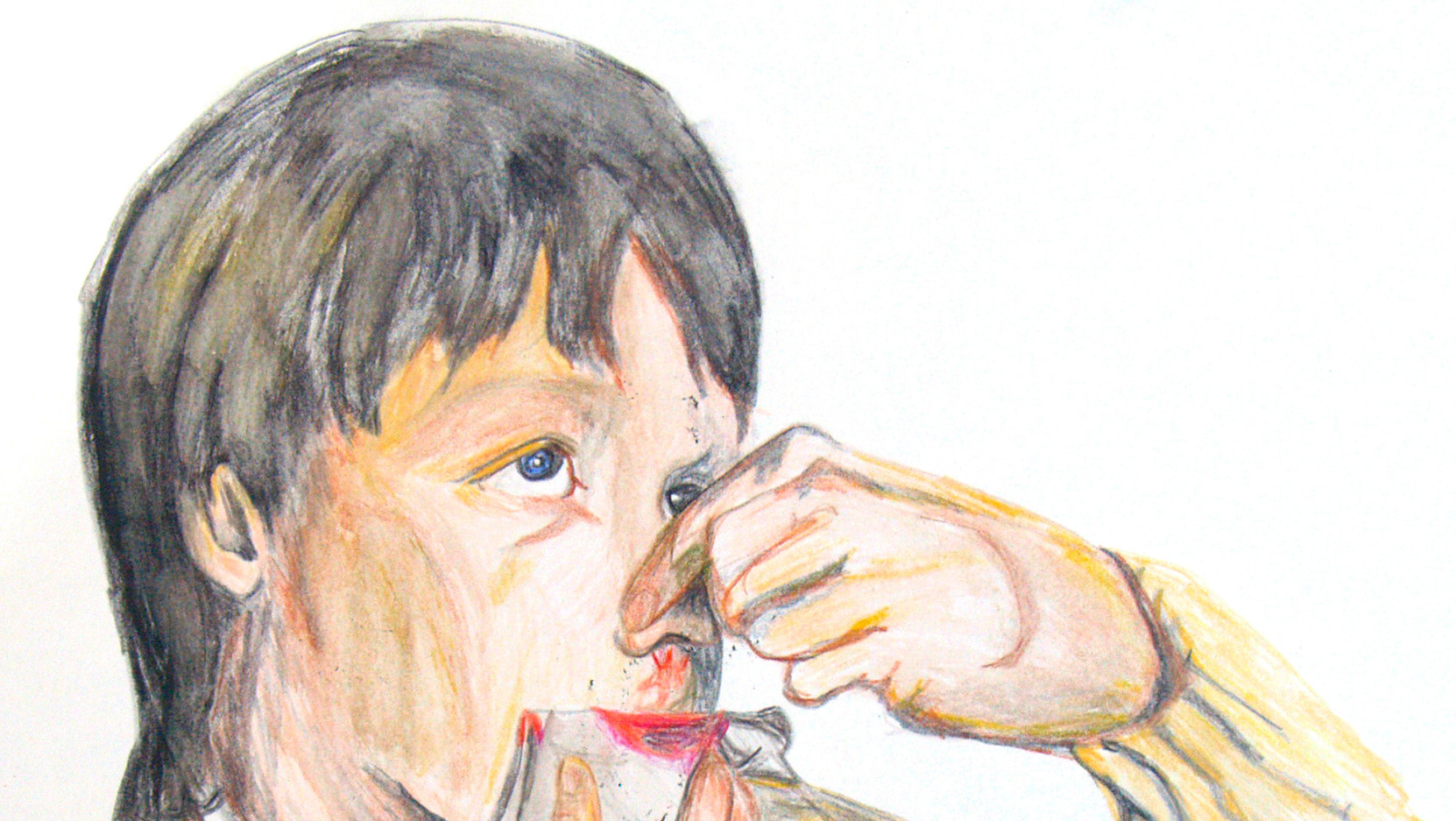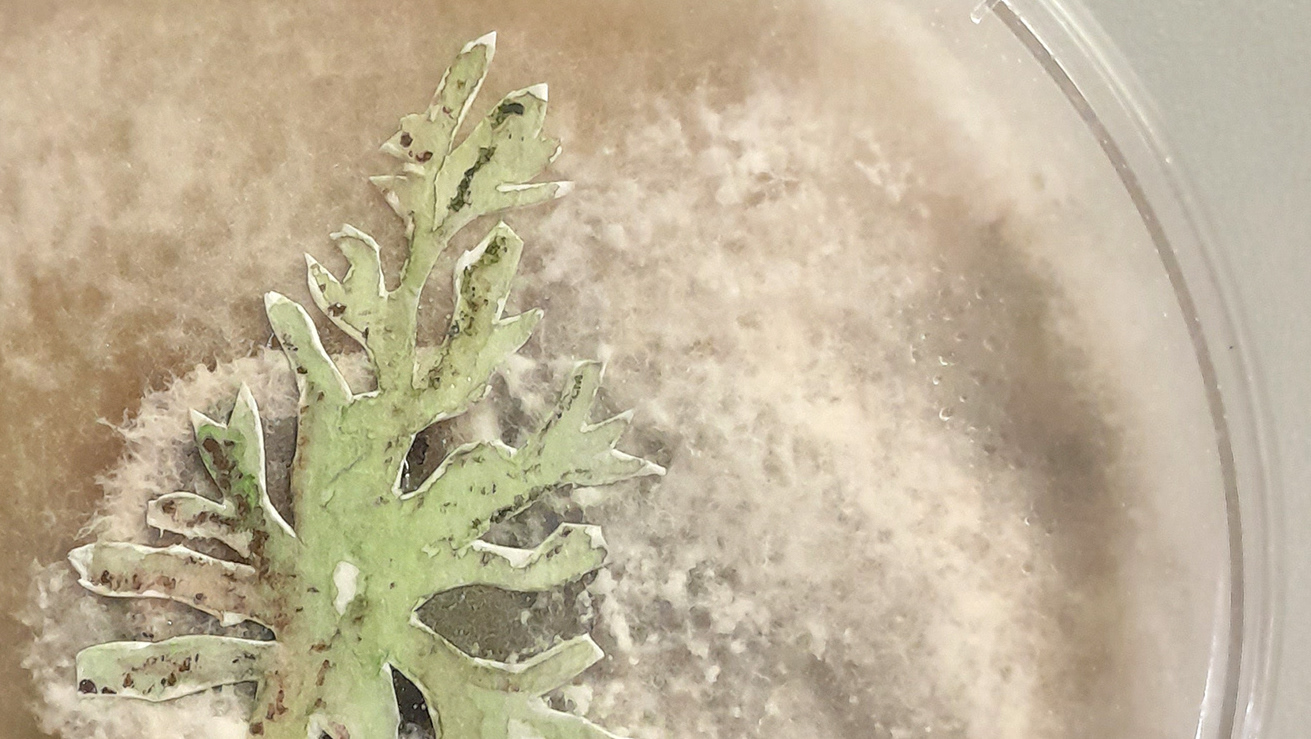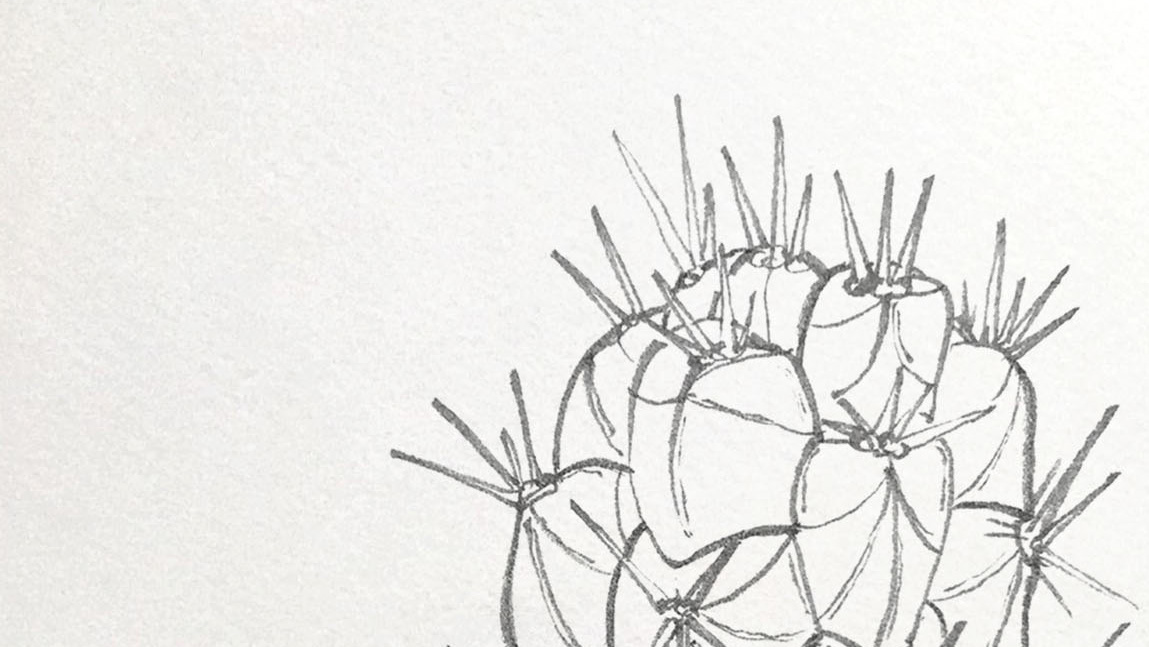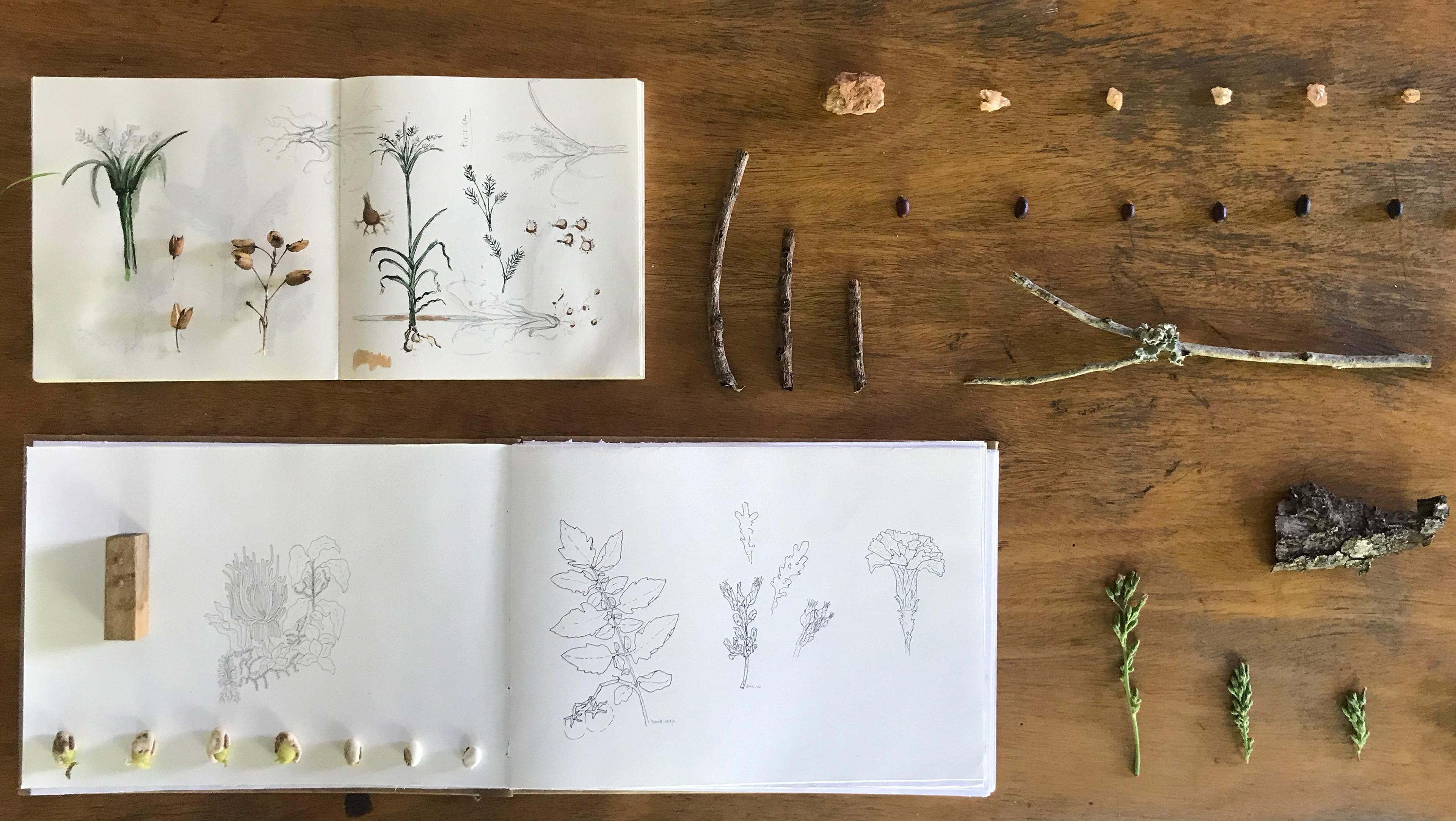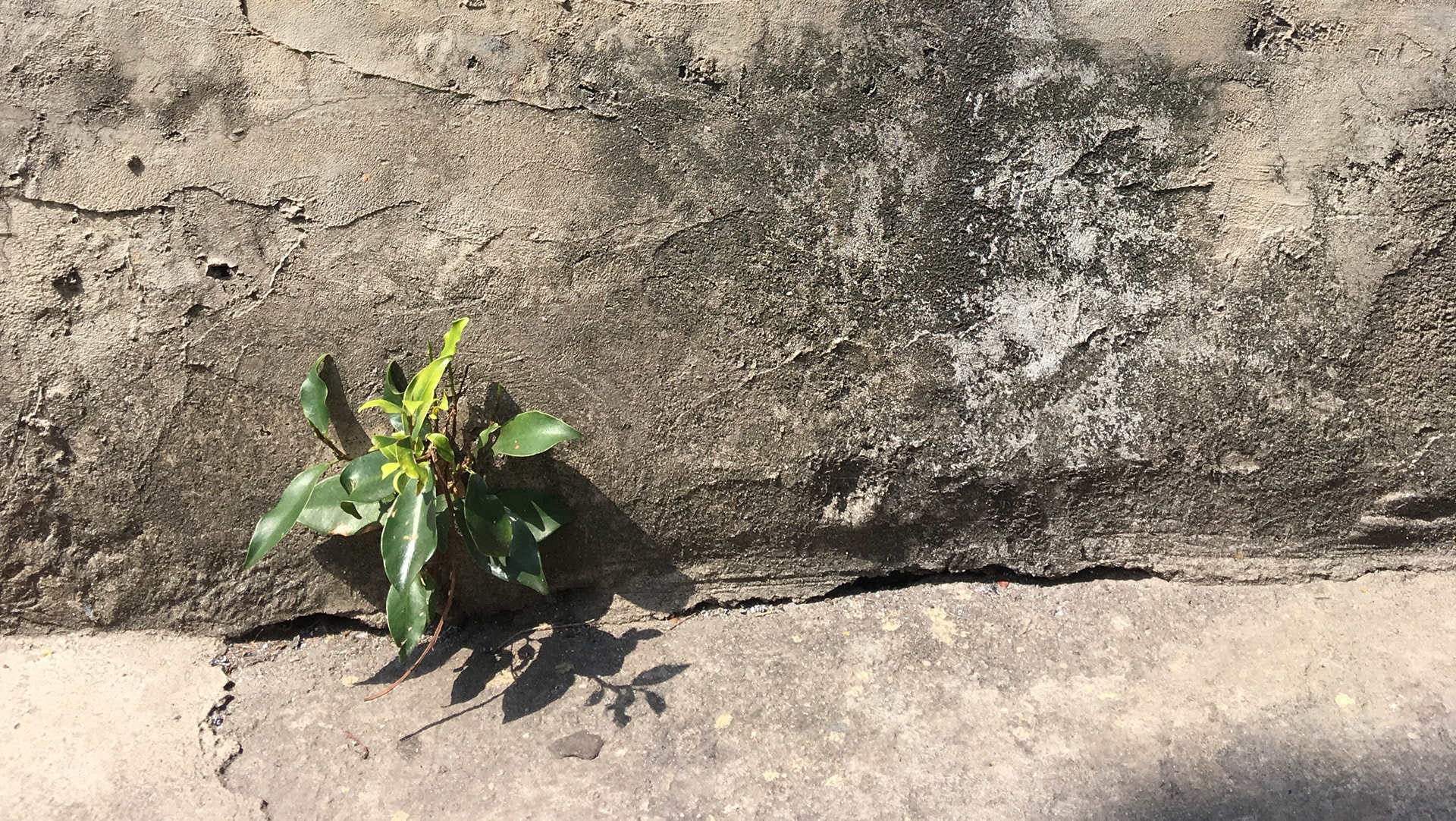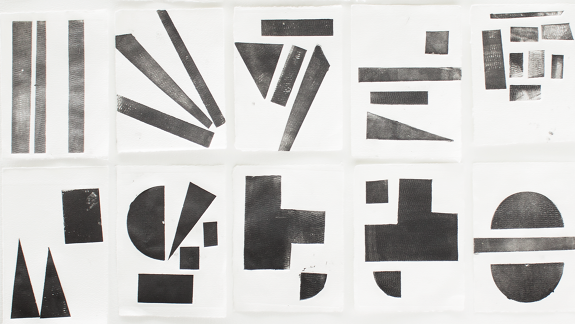Esta série de aquarelas é um exercício especulativo da interseção entre humanos e plantas. As aquarelas retratam seres humanos em diversos estágios de colonização por plantas, e questionam a relação entre humanos e o reino vegetal. Nos tempos atuais, é urgente repensar nossas relações com o mundo natural e de reconhecer a interconexão radical que permeia toda a vida na Terra. É um convite para pensar as fronteiras entre o humano e não-humano, entre colonizador e colonizado, imaginando novas formas de coexistência baseadas em reciprocidade, humildade e no respeito mútuo entre os seres.
As figuras humanas que emergem das plantas não são dominantes; ao contrário, elas são incorporadas por uma teia complexa de folhagens e raízes, sugerindo uma forma de coexistência e interdependência.
A colonização representada nas obras não se limita apenas ao contexto histórico convencional, mas também reflete as dinâmicas de poder presentes nas relações entre humanos e a natureza. A planta, muitas vezes vista como subserviente ao domínio humano, emerge como uma força emancipadora, desafiando estruturas de poder arraigadas e colocando em destaque tensões entre controle e liberdade, colonização e resistência.
This series of watercolors is a speculative exploration of the intersection between humans and plants. The watercolors depict humans at various stages of colonization by plants, questioning the relationship between humans and the plant kingdom. In current times, it is urgent to reconsider our relationships with the natural world and to recognize the radical interconnection that permeates all life on Earth. It is an invitation to contemplate the boundaries between the human and non-human, between colonizer and colonized, imagining new forms of coexistence based on reciprocity, humility, and mutual respect among beings.
The human figures emerging from the plants are not dominant; instead, they are enveloped by a complex web of foliage and roots, suggesting a form of coexistence and interdependence.
The colonization depicted in the works extends beyond conventional historical contexts, reflecting power dynamics present in human-nature relationships. The plant, often seen as subservient to human domination, emerges as an emancipatory force, challenging entrenched power structures and highlighting tensions between control and freedom, colonization and resistance.
